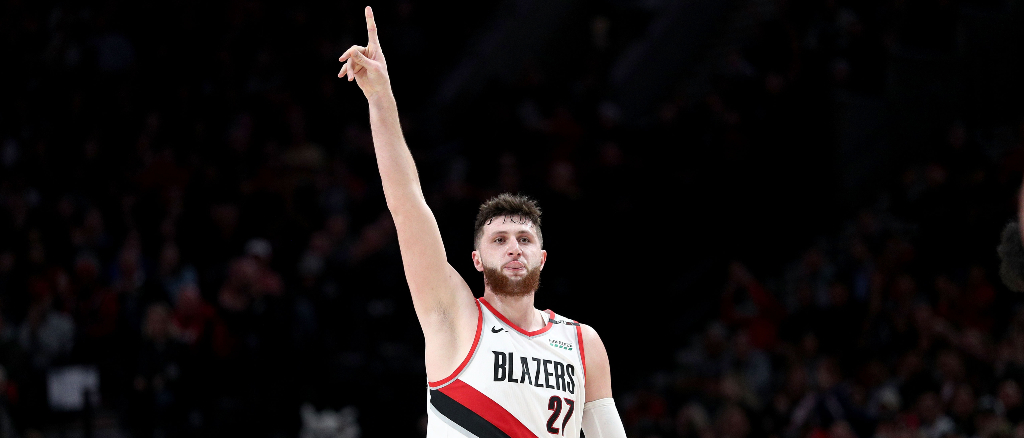
Last Updated: July 14th
There are plenty of good TV series on Netflix. Arguably, too many, in fact. If you’re trying to figure out what to watch next, here’s a great place to start with a look at 65 of the best shows on Netflix right now (including some of the best Netflix original series). You can also find recent changes, including new seasons and removed shows, at the bottom of this list, while some of the most recently added entries listed first.
Related: The Best Shows On Hulu Right Now
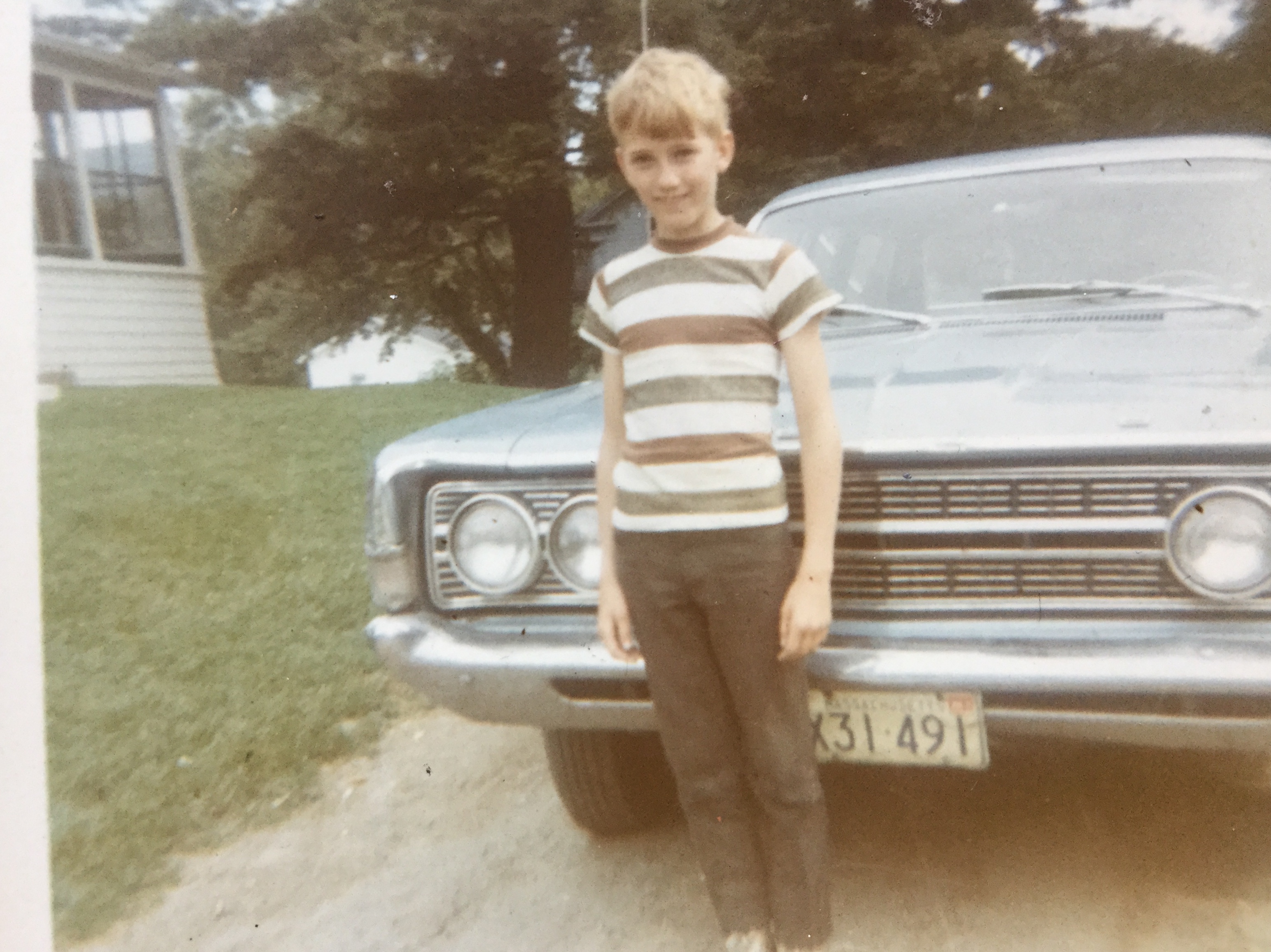
Unsolved Mysteries
1 season, 10 episodes | IMDb: 7.5/10
Netflix is giving this true-crime series a reboot which is good news for all the murder mystery junkies out there. UFOs, missing husbands, and a murderous French count still on the run are the highlights of the show’s first six episodes. Get your sleuth hats ready.
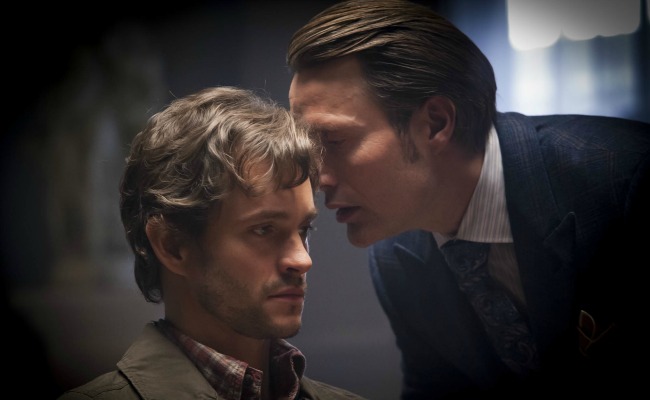
Hannibal
3 seasons, 39 episodes | IMDb: 8.6/10
Bryan Fuller’s Hannibal is a perfect series to binge-watch, given that the ability to watch back-to-back episodes evens out some of the slow pacing. Hannibal is dark, macabre, and brilliantly creative, and while it has many of the same characters viewers know and appreciate from the movie/book series, it also has an entirely different and unique tone (some would even say better). The murder scenes are equally gruesome and gorgeous, the series’ long arc is as disturbing as it is engrossing, and the acting from Hugh Dancy, Mads Mikkelson, and Laurence Fishburne is superb. It’s a slow, morbidly addictive burn, and viewers must stick around for Michael Pitt’s Mason Verger in season two, if only for one of the most beautifully unsettling sequences ever seen on network television.
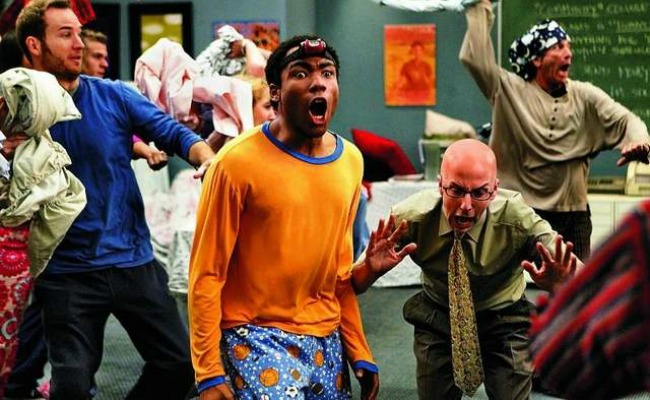
Community
6 seasons, 110 episodes | IMDb: 8.5/10
Has there ever been a sitcom as downright clever as Community? Aside from the gas leak year, Community was quicker than nearly every other comedy out there, with jokes flying fast but also taking seasons to reach a punchline. After getting caught with a phony degree, former lawyer Jeff Winger (Joel McHale) heads to Greendale Community College to get a legitimate degree. There he gets into increasingly hilarious hijinks with his Spanish study group. Between paintball wars, zombie outbreaks, and the increasingly ridiculous presence of Senor Chang (Ken Jeong), Community is never, ever boring. Quit living in the darkest timeline and get to watching.
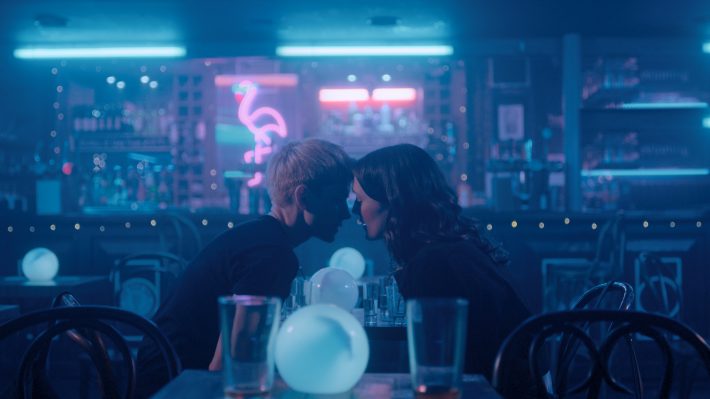
Feel Good
1 season, 6 episodes | IMDb: 7.5/10
Comedian Mae Martin stars in this feel-good dramedy series about a stand-up performer (named Mae), who falls for a young woman named George. Mae’s a recovering addict; George has just emerged from the closet. Sparks fly between the two, but Mae’s past drug use and George’s reluctance to come out to her friends and family threatens to break them up.
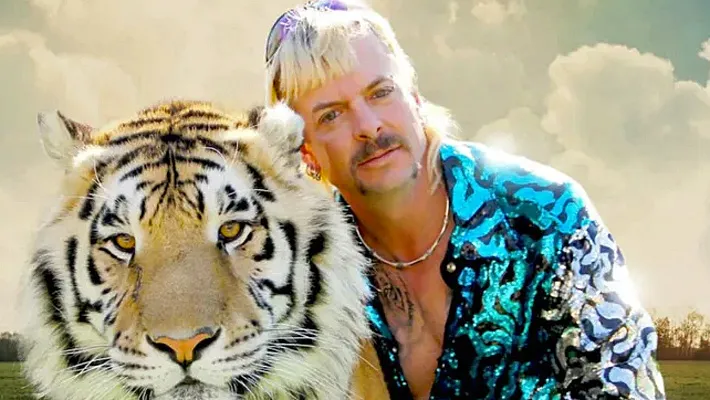
Tiger King
1 season, 8 episodes | IMDb: 8/10
There are stories too bizarre, too mind-boggling to be true… and then there’s this seven-part docuseries. Cults, queer romance, exotic cats — this true-crime binge has it all. Is Joe Exotic, a gay, gun-loving conman running an exotic zoo out of his home in Oklahoma, a criminal or an American hero? Did animal rights activist Carole Baskin murder her husband and feed him to her tigers? Why are so many zoo employees missing limbs? These are just a few of the questions you’ll ask while watching this train wreck. Have fun, kids.
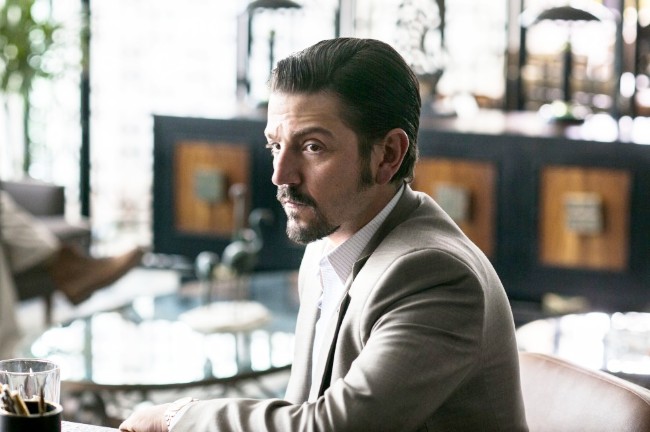
Narcos: Mexico
2 seasons, 20 episodes | IMDb: 8.4/10
Good news: Narcos is back. Even better news: Mexico is basically an entirely revamped show, which means you don’t need to be familiar with past installments to enjoy the wild ride. Diego Luna plays the new big bad, a drug lord looking to expand his reach, while Michael Pena plays the fed tasked with busting his operation. Luna looks to be thoroughly enjoying playing the sleazeball gangster-type, and since this installment is set in the 1980s, expect plenty of decadence, a killer soundtrack, and a ton of cocaine.
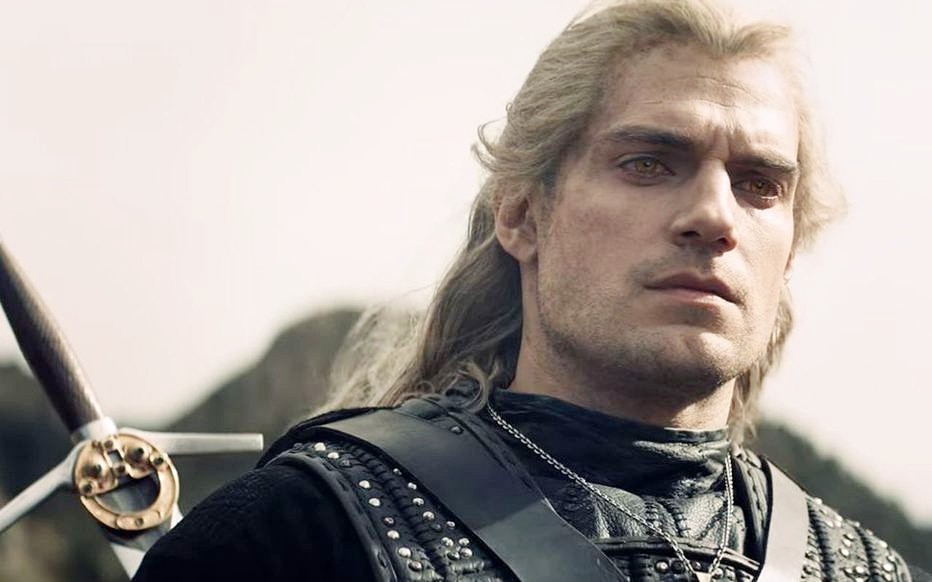
The Witcher
1 season, 8 episodes | IMDb: 8.5/10
Henry Cavill leads this fantasy epic based on a best-selling series of books and a popular video game franchise. The expectations are high, but they’re more than exceeded by Cavill, who plays a mutated monster hunter named Geralt. Showrunner Lauren Schmidt Hissrich laid out for us the changes she made from page to screen, introducing key characters like the sorceress Yennefer and the destined princess Ciri early on, changes that take this show to the next level. It’s a cross between a police procedural and a Lord Of The Rings-style adventure. You’ll love it.
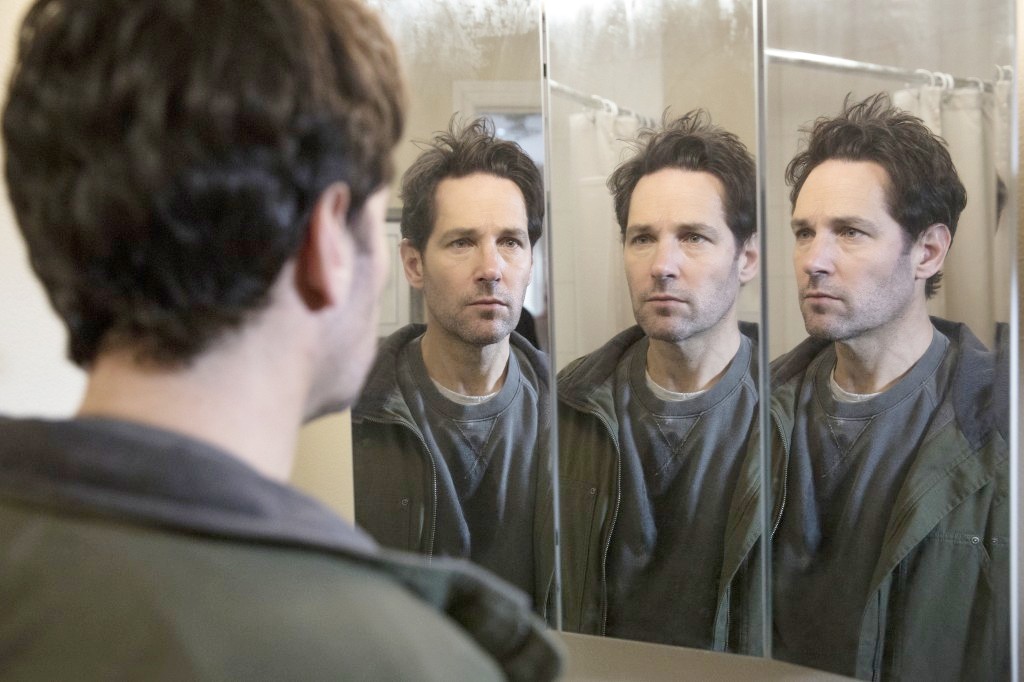
Living With Yourself
1 season, 8 episodes | IMDb: 7.3/10
The only thing better than a series starring Paul Rudd is a show starring two Paul Rudds. The funnyman leads this new original series while playing a man named Miles, who seems pretty dissatisfied with his life so far. After agreeing to participate in a mysterious spa treatment that promises a better, more successful life, Miles is left with a practically perfect doppelganger intent on taking his life from him. It’s dark and weird, and did we mention the two Paul Rudds?
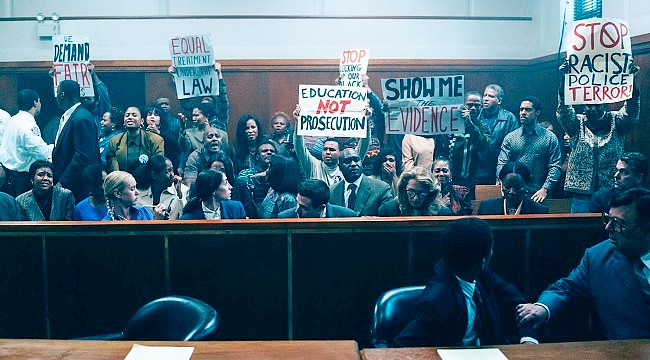
When They See Us
1 season, 4 episodes | IMDb: 9/10
Director Ava DuVernay’s limited series about the wrongfully accused men in the Central Park Five case is an emotionally heavy reimagining of a truly tragic event in our history. The series sheds light on racial profiling and corruption in the NYPD as a group of young Black men are targeted for a heinous crime and put on trial with little evidence. It’s a gripping, heartbreaking retelling, but one that feels sadly relevant.
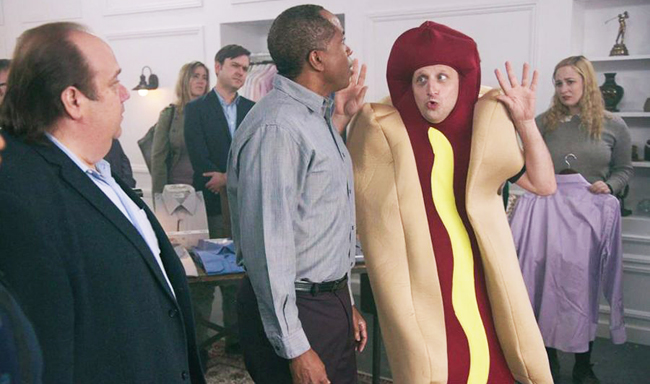
I Think You Should Leave with Tim Robinson
1 season, 6 episodes | IMDb: 7.6/10
Saturday Night Live and Detroiters alum Tim Robinson creates and stars in this 15-minute sketch comedy series that is perfectly happy to offer up a few irreverent laughs without all of the post-comedy commentary that weighs down other funny shows in 2019. It’s a mixed bag of unconnected stories about toddler pageants and old men out for revenge and how Instagram has warped our social interactions in hilariously bizarre ways. What each of these skits has in common is Robinson’s particular brand of comedy and his unrivaled ability to make you laugh.
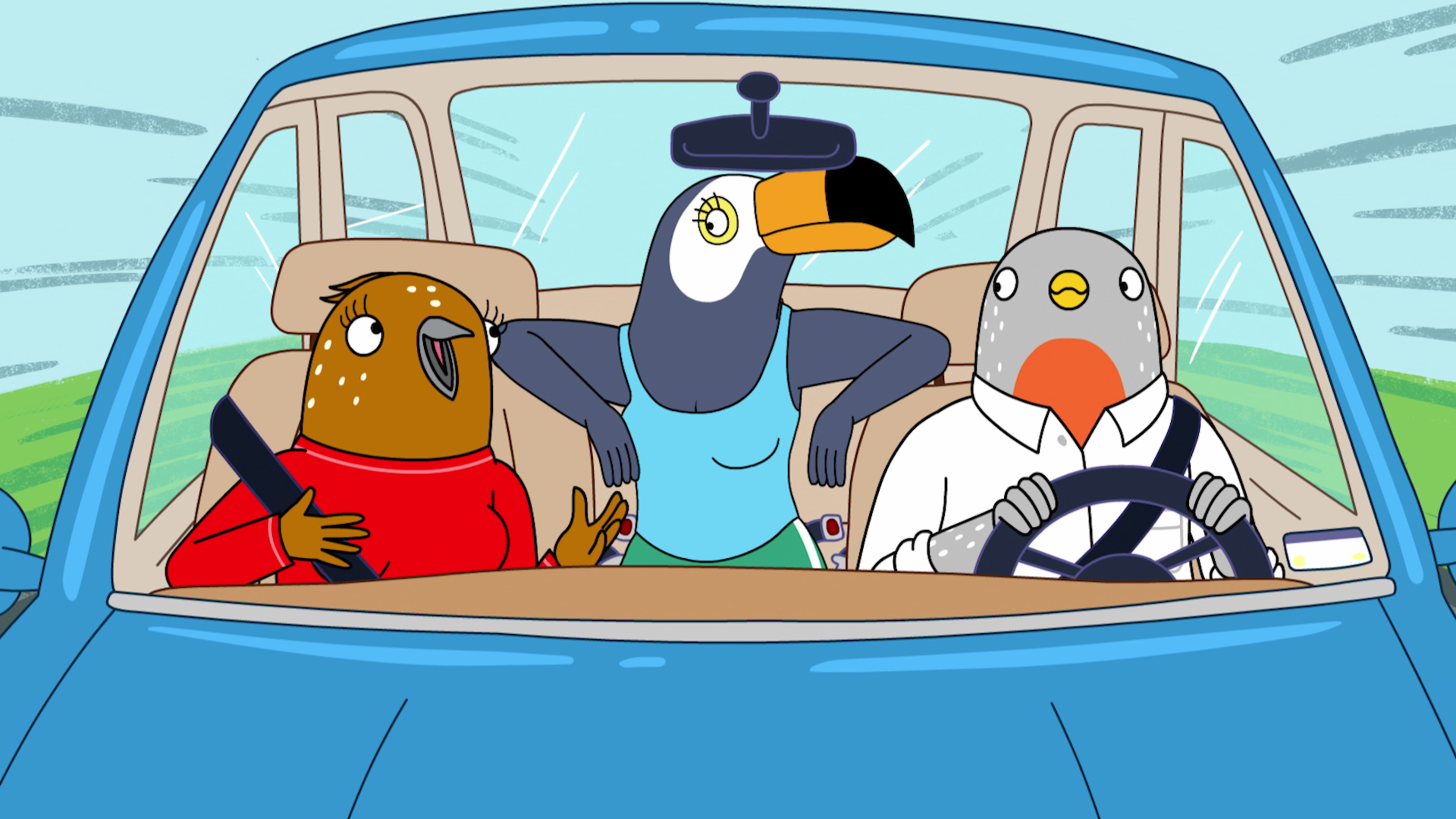
Tuca & Bertie
1 season, 10 episodes | IMDb: 7.4/10
Ali Wong and Tiffany Haddish voice the stars of this animated comedy from BoJack Horseman artist Lisa Hanawalt. Wong plays Bertie, a 30-something songbird thrush with debilitating anxiety, a knack for baking, and a truly toxic work environment. Haddish plays her best friend Tuca, a loud-mouthed toucan who loves to party and hates the thought of settling down. The friends try to hold on to their single days, even as Bertie takes the next step in her long-term relationship and Tuca struggles to find her place in the world. It’s a more colorful, comforting world than BoJack, but it’s got the same great humor and surprisingly-thoughtful musings.
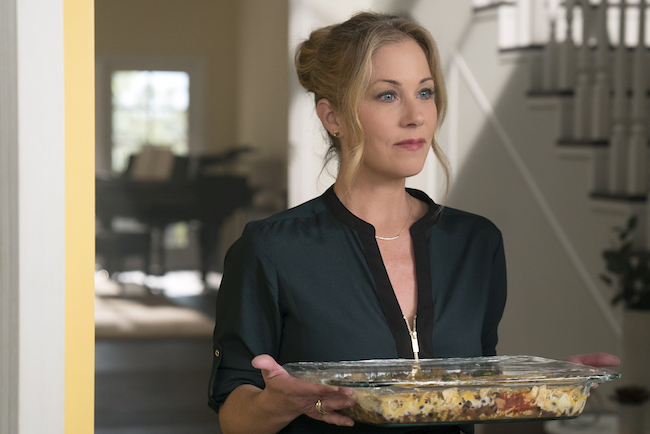
Dead To Me
2 seasons, 20 episodes | IMDb: 8.1/10
Christina Applegate returns to TV with this grief-com about a woman trying to pick up the pieces after her husband is murdered in a horrible hit-and-run accident. Applegate plays the angry, grieving widow with equal parts humor and empathy while Linda Cardellini plays her sunny, optimistic best friend. The two meet in a grief group and navigate the challenges of moving on after loss while also solving a murder mystery. There’s no way you’ll know what to expect here, which is half the fun of watching.
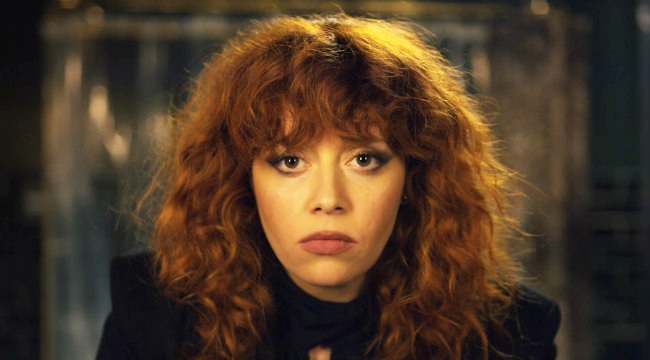
Russian Doll
1 season, 8 episodes | IMDb: 7.9/10
Natasha Lyonne stars in this Groundhog Day-from-hell remake about a woman who’s forced to relive the last day of her life over and over again. It’s been done before, but this series stands out thanks to its mix of dark humor and a tinge of the supernatural. Lyonne is one of the often overlooked OITNB stars, but it looks like this series is giving her a chance to show off her comedic chops as her character, Nadia, endures a constant loop of partying, dying, then waking up to do it all over again. As bleak as the premise is, Lyonne manages to find a silver lining, a universal message that basically read, “The world is sh*t, let’s help each other out if we can.”
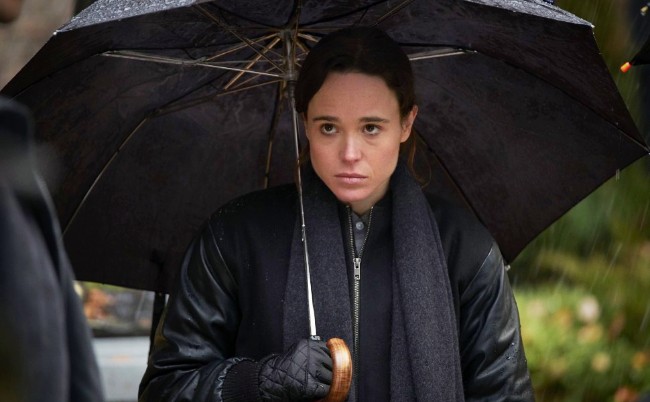
The Umbrella Academy
1 season, 10 episodes | IMDb: 8/10
Superhero team-ups are a dime a dozen, but the TV adaptation of this award-winning comic series created by Gerard Way — yes, the lead singer of My Chemical Romance — feels wholly unique and thus, totally refreshing. The show follows the story of seven kids, all born on the same day to mothers who didn’t even know they were pregnant. They’re adopted by a mysterious billionaire and trained to use their supernatural abilities to fight evil in the world, but when they grow up, their dysfunctional upbringing catches up with them, and they’re left struggling to live normal lives. It’s all kinds of weird, which is exactly what the genre needs right now.
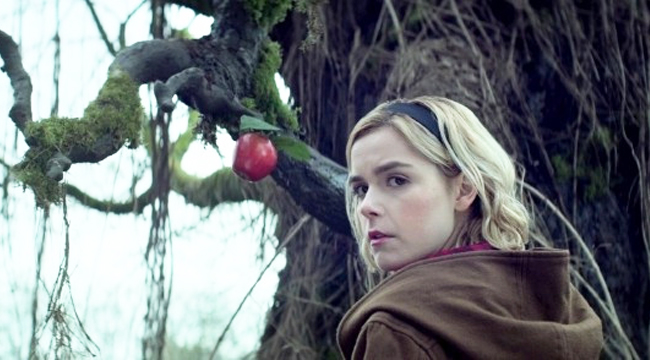
Chilling Adventures of Sabrina
3 seasons, 31 episodes | IMDb: 7.7/10
Kiernan Shipka stars in this witchy revival of a sitcom classic. This Sabrina Spellman is darker than what millennials are used to. As a half-mortal, half-witch, Spellman is an outcast with the magical community and the first season explores the cult-like fervor of magic users, their worship of Satan, and why Sabrina is being pressured to sign her name over to the Dark Lord. The show also tackles issues of romance, friendship, and sexism in clever, crafty ways and with season two newly released, expect things to get even more nightmarish for the Spellman clan.
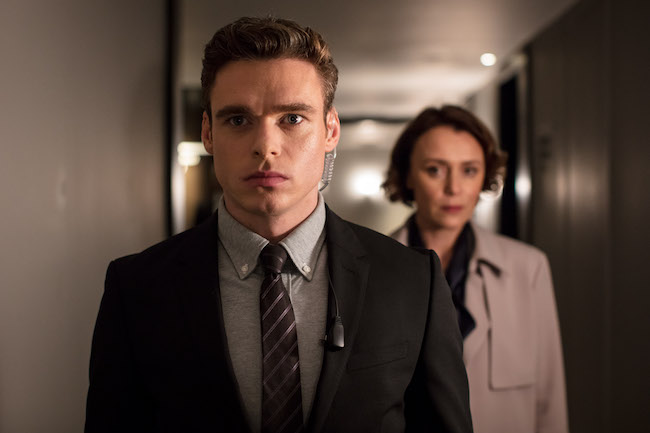
Bodyguard
1 season, 6 episodes | IMDb: 8.2/10
The UK’s most popular new drama has made its way across the pond. The procedural thriller stars Game of Thrones’ Richard Madden as David Budd, a military vet turned police officer tasked with protecting a high-profile politician during a, particularly dicey time. There’s plenty of suspense and action to string you along, coupled with a vulnerable performance by Madden, who ditches his King of the North swagger to play a man conflicted by his past and his present duty to his country.
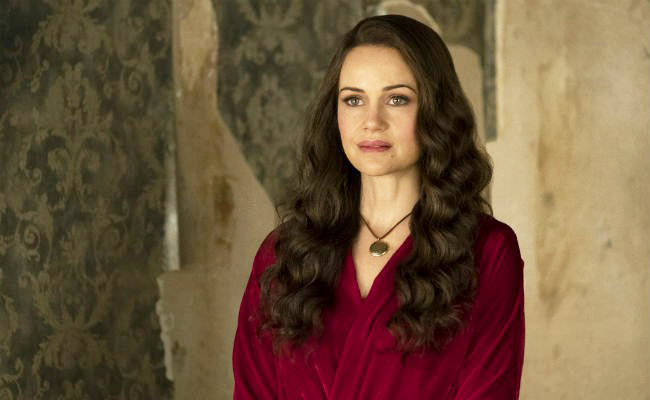
The Haunting of Hill House
1 season, 10 episodes | IMDb: 8.7/10
Mike Flanagan knows how to do horror, and his latest series for Netflix, The Haunting of Hill House, is proof of that. The show, like the book off which it’s based, follows the fractured Crain family as they try to make peace with their dark and twisted path. Of course, through some carefully-timed flashbacks, we see why the Crain siblings are so messed up: They lived in a haunted house as children, a house that eventually caused the death of their mother. There are plenty of frights to keep horror fans interested in this thriller, but the real point of this show is investigating trauma and its lingering effects. Makes sense that horror is the best way to do that.
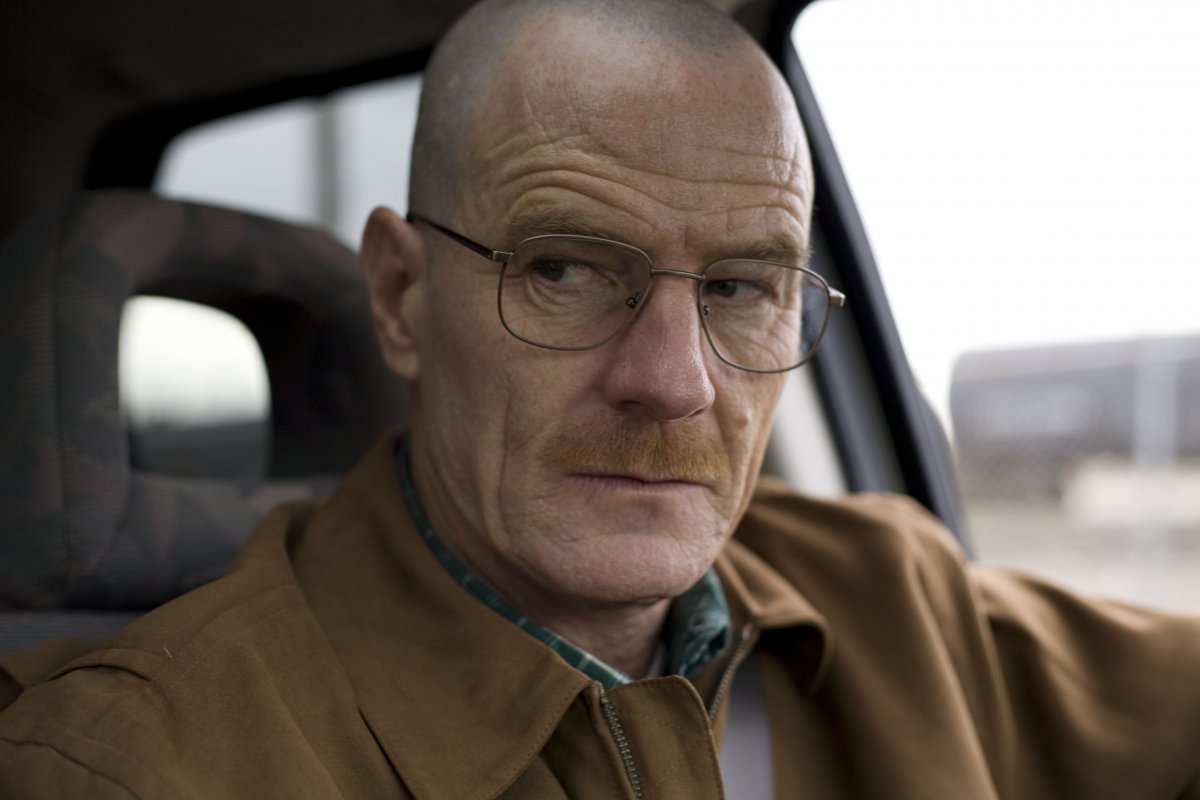
Breaking Bad
5 seasons, 62 episodes | IMDb: 9.5/10
Not just the best series on Netflix, Breaking Bad is the best series of all time. There’s no debate about that.
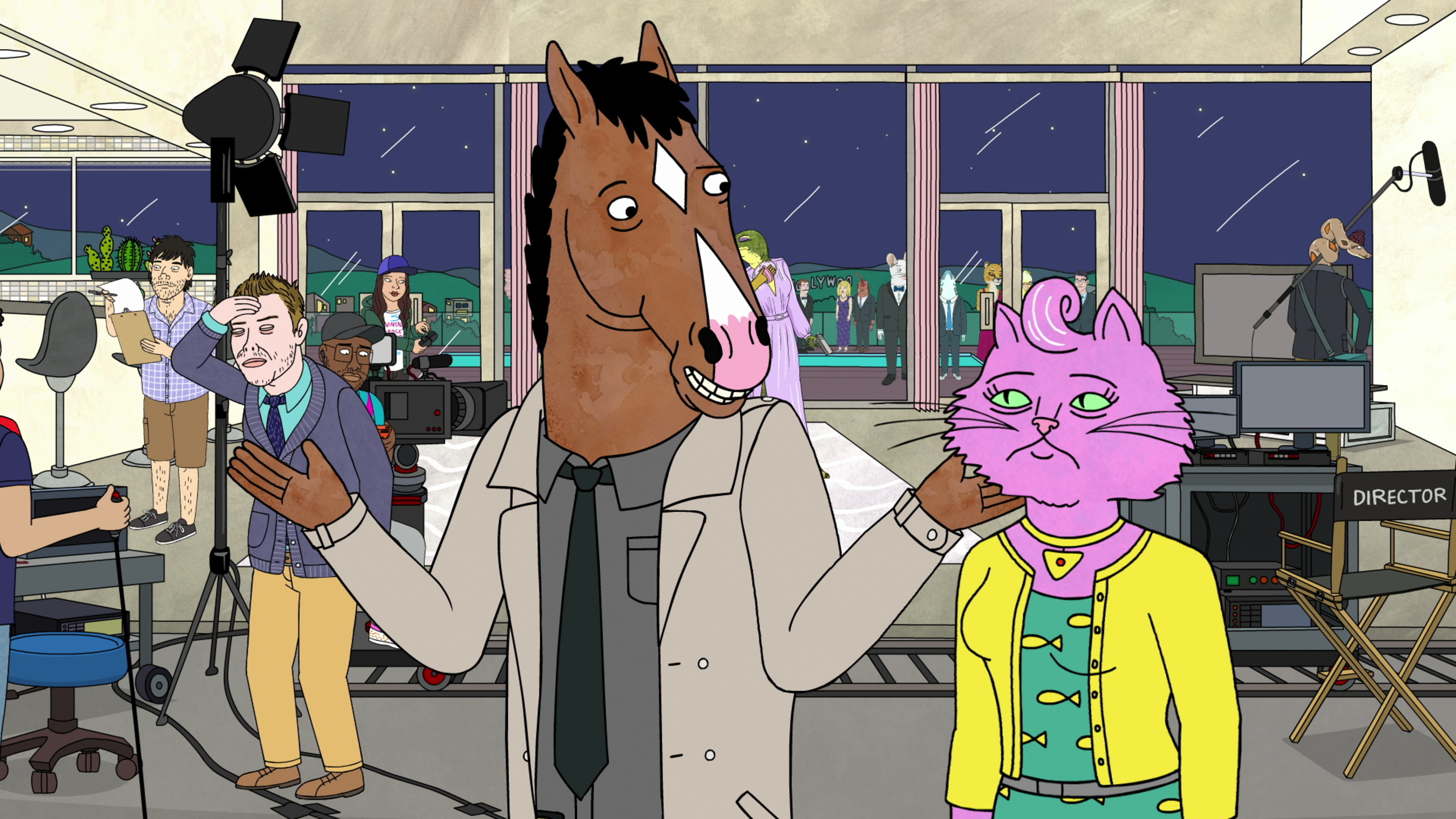
BoJack Horseman
6 seasons, 77 episodes | IMDb: 8.5/10
Not enough people on the Internet have explained that BoJack Horseman is not what it might seem like. Not enough people raved that it was an often very funny, often very heartbreaking meditation on depression. It’s an animated sitcom about a washed-up horse, and somehow, it’s also an incredibly profound look at deeper themes. It’s amazing, but it may also leave you in a depressive funk for days afterward. Its fourth season even placed it among our best TV shows of 2017, and, thankfully, Season 5 is just as funny and sad as ever.
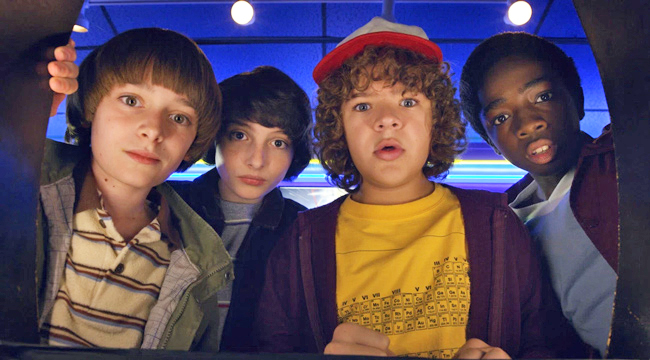
Stranger Things
3 seasons, 25 episodes | IMDb: 8.9/10
A throwback and love letter to the early 1980s movies of Steven Spielberg and John Carpenter, the Duffer Brothers’ Stranger Things feels both familiar and new. It’s about a boy named Will (think E.T.‘s Elliot) who is captured by a The Thing-like creature and trapped in a Poltergeist-like world. His mother (Winona Ryder) recruits the local sheriff to investigate Will’s disappearance. Meanwhile, Will’s dorky, Goonies-like best friends take to their bikes to do some sleuthing of their own and eventually befriend an alien-like girl with telepathic powers (the E.T. of the series). Season two continues that vibe as the show dives deeper into government conspiracies and alien monsters intent on wreaking havoc on small-town Indiana. It’s great PG horror/sci-fi, like the blockbusters of the early ’80s, and even if you didn’t come of age in the era, there’s something for everyone to enjoy.
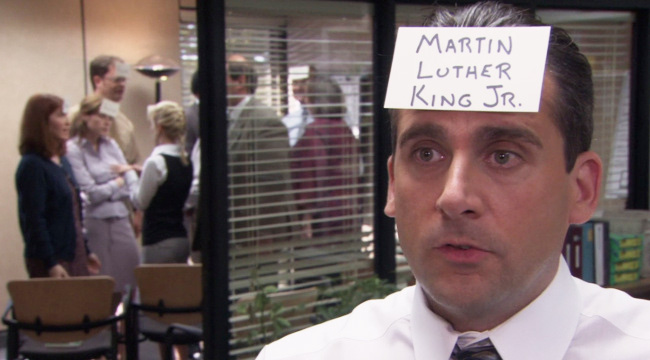
The Office
9 seasons, 201 episodes | IMDb: 8.8/10
The original UK The Office mainstreamed Ricky Gervais’ awkward, uncomfortable humor, while The Office diluted it (some), layered in one of sitcom’s greatest romances (for four seasons, anyway), and surrounded Steve Carell with a remarkable, quirky supporting cast. The first four seasons still stand as the best workplace comedy in American sitcom history, even if the final four seasons were increasingly mediocre — though the series did redeem itself in the end.
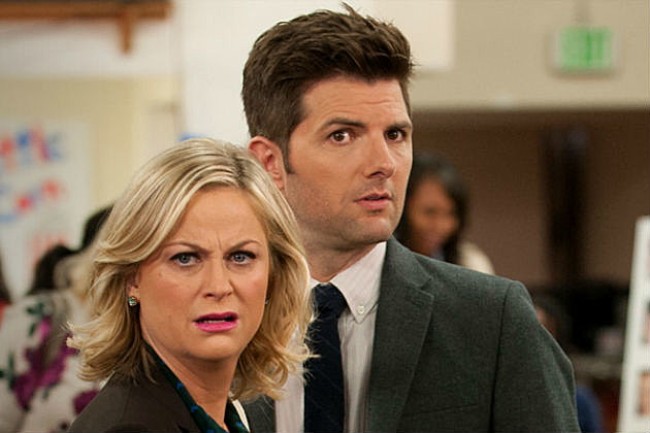
Parks and Recreation
7 seasons, 125 episodes | IMDb: 8.6/10
Witty, heartfelt, and funny, you’re not likely to find a more likable sitcom than Parks and Recreation. The first six episodes aren’t very good, but once they figured out what to do with Amy Poehler’s Leslie Knope, the sitcom began to thrive, thanks in huge part to its endearing supporting cast. Parks and Rec is blissful television, and a must watch for any fan of great sitcoms.
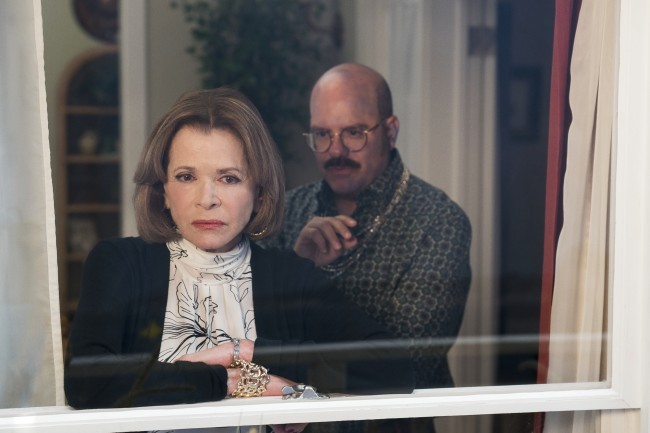
Arrested Development
5 seasons, 84 episodes | IMDb: 8.9/10
The series lost some of the mystique it had gained after its cancellation because Netflix’s season four wasn’t to everyone’s satisfaction — though it flowers with repeat viewings, especially with the recut version of it. Arrested Development still stands as one of the funniest, most inventive, and most influential sitcoms of the generation.
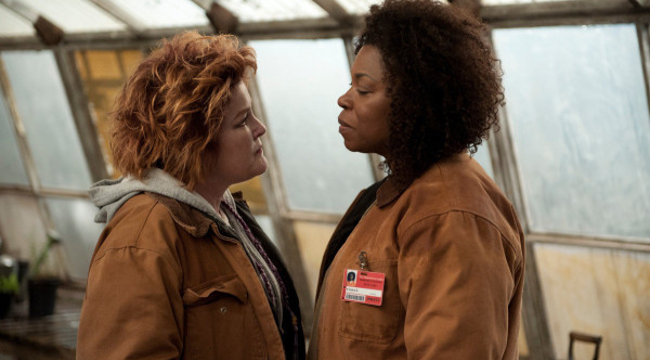
Orange is the New Black
7 seasons, 91 episodes | IMDb: 8.2/10
One of the best original shows on Netflix, this prison dramedy is a deeply human, funny, moving, realistic, progressive show about life and the bad decisions we’re all destined to make. OITNB humanizes the dehumanized, transforms labels — felons, thieves, murderers, embezzlers — into real human beings and reminds us that, even in prison, life isn’t put on hold. Life is being led. It’s a remarkably excellent series, and addictive as hell.
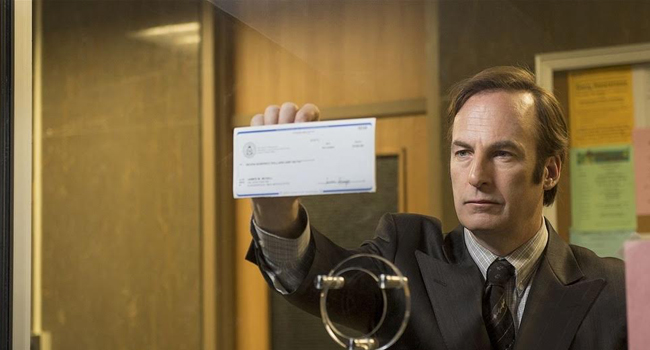
Better Call Saul
4 seasons, 40 episodes | IMDb: 8.7/10
In its first season, Better Call Saul quickly put to rest any fears anyone might have had about a spin-off from arguably the greatest drama of all time, Breaking Bad (which sits atop this list). Vince Gilligan and Peter Gould return as showrunners, and they continue to bring the same level of complexity, intensity, and character development to Saul as they did for Breaking Bad. What’s most remarkable about the series, however, is that they managed to transform the Saul character into someone humane and sympathetic while staying true to the same character in the original series. Indeed, Saul is the most detail oriented and perhaps the smartest show on television, and one hell of an intense, suspenseful drama, which is all the more impressive because we know roughly where it will end up.
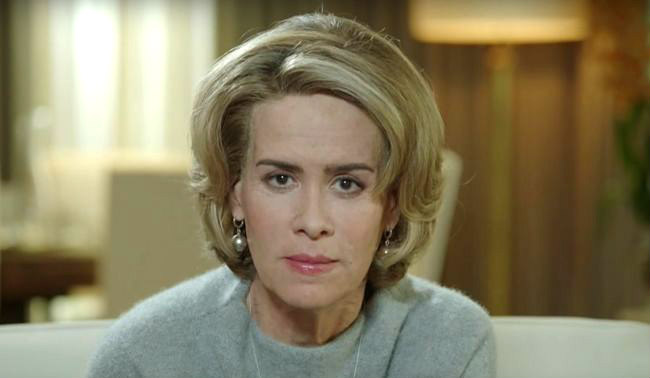
American Horror Story
8 seasons, 106 episodes | IMDb: 8.1/10
Ryan Murphy’s horror anthology on FX is an unpredictable tour-de-force that, when it sticks its landing, is one of the best shows on TV. The series chronicles truly terrifying, mind-warping plots across multiple seasons, connecting some, ignoring others. What grounds these outrageous storylines involving haunted hotels, murder houses, insane asylums, cults, and covens is the cast, most notably Jessica Lange, Sarah Paulson, and Evan Peters. Murphy relies on their visceral portrayals of individuals unhinged to sell this whacky, nightmare-inducing rollercoaster and sell they do.
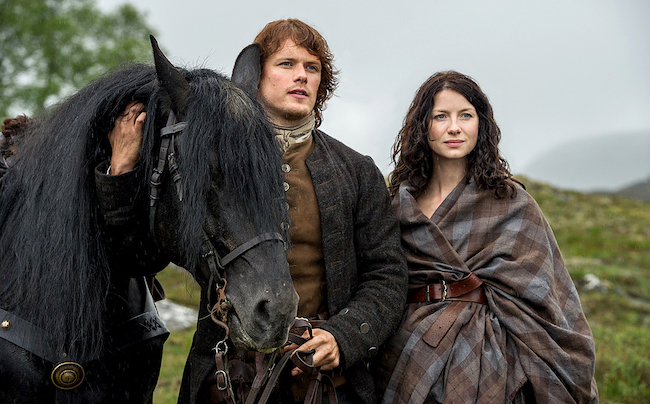
Outlander
3 seasons, 43 episodes | IMDb: 8.5/10
At first glance, this bodice-ripper from Starz reads like the television adaptation of a dime-store paperback romance novel. It’s got time travel, sexy Scottish men in kilts, an arranged marriage, even a bit of witchcraft. But the show, starring Caitriona Balfe and Sam Heughan, elevates itself beyond those tropes, touching on everything from love and loss to the politics behind some of history’s most infamous conflicts. From the highlands to the French court, the series delivers awe-inducing visuals, career-making performances, and the kind of drama to keep you hooked.
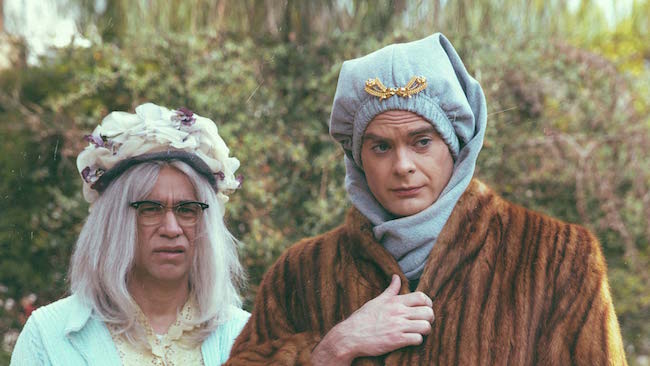
Documentary Now!
2 seasons, 14 episodes | IMDb: 8.1/10
Fred Armisen, Bill Hader, and Seth Meyers have created something truly unique with their riff on our culture’s obsession with docu-style TV series. The SNL alums mock the stylistic choices and subjects of other shows of its ilk, with episodes dedicated to everything from Grey Gardens to The Thin Blue Line. And the guest list for this thing is unbelievable.
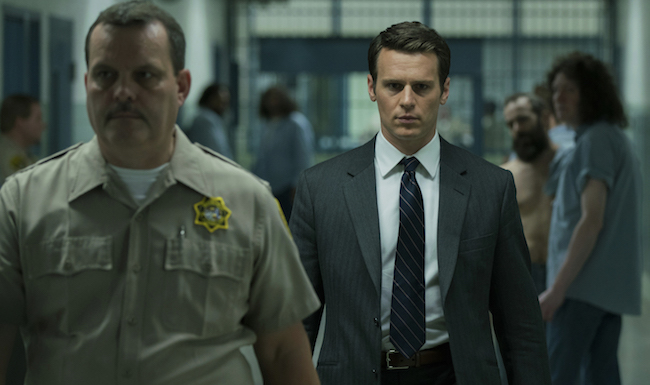
Mindhunter
2 seasons, 20 episodes | IMDb: 8.5/10
In Mindhunter, Jonathan Groff plays Holden Ford, a character based on the real-life John E. Douglas (the inspiration for Jack Crawford in the Hannibal series). The series itself is based on the origins of an actual behavioral science unit in the FBI used to study serial killers in the 1970s and 80s. Ford is a young FBI Agent who takes a keen interest in psychology which, in turn, grows into an interest in the psychology of sequential killers. It’s a fascinating exploration into the origins of what now seems commonplace, a science that has inspired dozens of police procedurals. What’s more interesting here, however, is that while Ford is studying serial killers (all of whom are based on actual serial killers from that era), Ford develops his own obsession with serial-killers that mirrors the obsession serial killers have with their victims. It’s engrossing and fascinating. The series comes from Joe Penhall and executive producer David Fincher (who also directs several episodes), and fans of Fincher’s Zodiac will appreciate Mindhunter for its same attention to detail, and the same dedication to character and research over surprising twists and reveals.
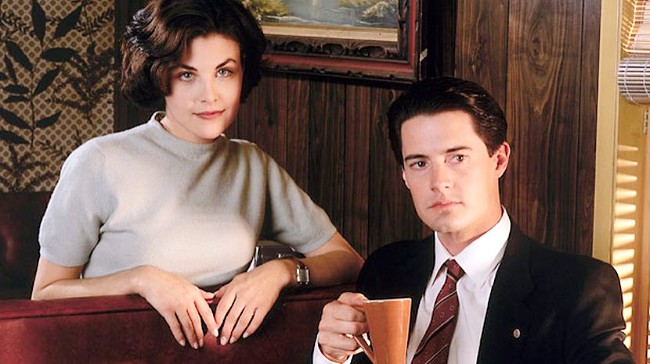
Twin Peaks
2 seasons, 30 episodes | IMDb: 8.8/10
If small-town murder mysteries full of camp and supernatural phenomenon are your thing, well then why wouldn’t you watch (or re-watch) Twin Peaks? The series, crafted all the way back in the ’90s by David Lynch, is a cult-favorite and for good reason. With Kyle MacLachlan playing Special Agent Dale Cooper, a poor schmoe who’s called in to investigate the murder of homecoming queen Laura Palmer, he’s met with more than he bargained for. Conspiracies theories and otherworldly beings, time travel, and dwarves in red business suits soon follow. The original series may have ended with cliffhangers and unexplained plot-holes, but with the more recent Showtime revival, now’s as good a time as any to catch up on all the strange events that seem to plague this sleepy town.
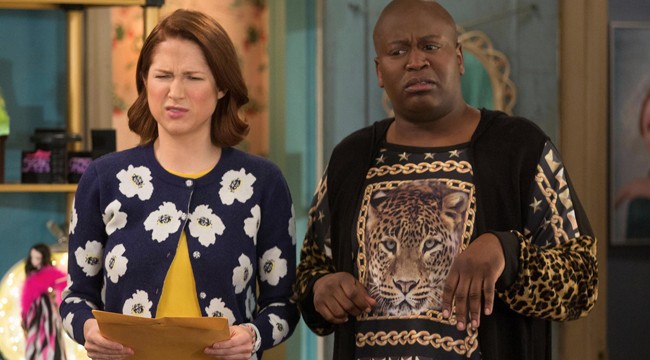
Unbreakable Kimmy Schmidt
4 seasons, 52 episodes | IMDb: 7.7/10
This Tina Fey-produced sitcom — which was originally supposed to air on NBC before the network agreed to give it to Netflix — is as dense and irreverent as 30 Rock, but it’s also immensely life-affirming. It’s funny, fast-paced, chock-full of pop-culture references and maybe the easiest Netflix original series to binge-watch. And, like 30 Rock, Unbreakable Kimmy Schmidt also includes a lot of fun — and unexpected — celebrity cameos and pop culture references throughout its four seasons.
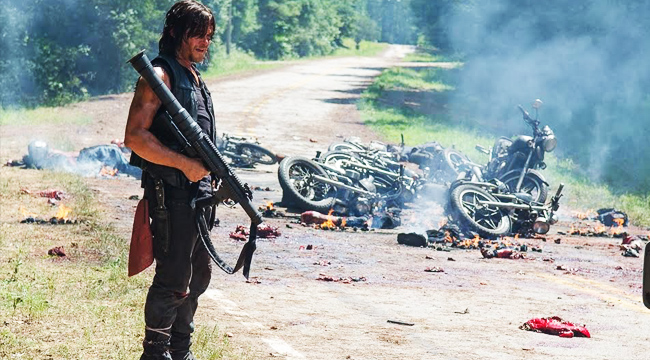
The Walking Dead
9 seasons, 131 episodes | IMDb: 8.3/10
Currently, the highest-rated scripted series on cable television, The Walking Dead is an up-and-down show. When it’s good, it’s phenomenal; when it’s not, it can be a slog (especially in the earlier half of the series, when Frank Darabont was showrunner). Greg Nicotero does fantastic FX work, and the series is particularly compelling because no one — no matter how high they are listed in the credits — is safe from the zombie apocalypse, and the showrunners seem to relish in killing off cast members (other than the almighty Rick Grimes). Some of the binge-watching value, however, is lost because it’s so difficult to avoid being spoiled to plot points of one of the most talked about series on TV. Nevertheless, unlike almost any television drama, up until the sixth season, The Walking Dead improved with age, Beware of the cliffhangers, however, in season six, and a precipitous fall off in quality thereafter.
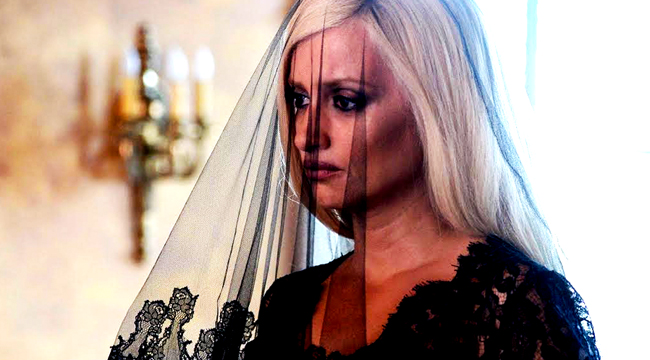
American Crime Story
2 seasons, 19 episodes | IMDb: 8.5/10
Although the original trial took place 20 years ago, and despite the fact that anyone watching the series already knows the outcome, The People vs. O.J. Simpson somehow remains a tense, suspenseful watch. Buoyed by incredible performances (the season was nominated for over 20 Emmy Awards, winning 8), The People vs. O.J. Simpson recreates the events following the murder of Ronald Goldman and Nicole Brown Simpson and recasts them in the light of what we know now. In its second season, the shows moves focus on the assassination of design legend Gianni Versace by Andrew Cunanan. While not as strong as the amazing ensemble in Season 1, Season 2 boasts memorable portrayals of conflicted, complex figures by Darren Criss, Penelope Cruz, Édgar Ramírez, and (surprisingly) Ricky Martin.
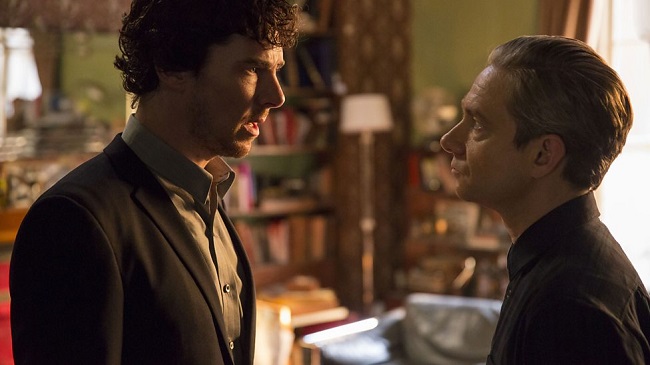
Sherlock
4 seasons, 13 episodes | IMDb: 9.2/10
Sherlock is the best iteration of the Sherlock Holmes ever to air on television. The British series from Steven Moffat stars Benedict Cumberbatch and Martin Freeman, and despite the fact that it has been updated, it brilliantly captures the same spirit of Arthur Conan Doyle’s classic stories. It’s fast-paced, engrossing, brilliantly acted, often very funny, and frequently tragic.
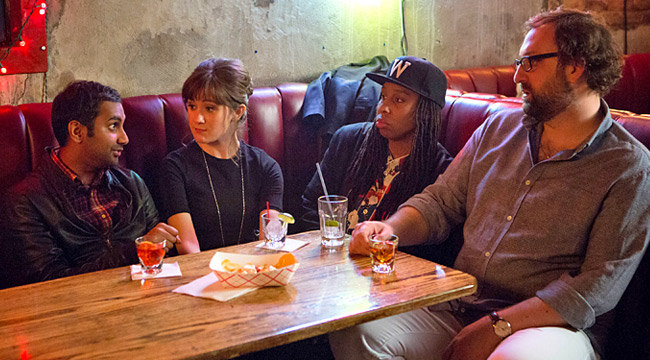
Master of None
2 seasons, 20 episodes | IMDb: 8.3/10
Intimate, funny, warm and kind, Master of None confidently tackles issues of sex and race from a perspective original to mainstream television. Creator, writer, and star Aziz Ansari loads the sitcom with smart observations and wry humor, and when it comes to dating as a thirty-something, Ansari just gets it. Sweet, sentimental, but never sappy, the mold-breaking Master of None may be the most thoughtful and well-considered dating sitcom on television.
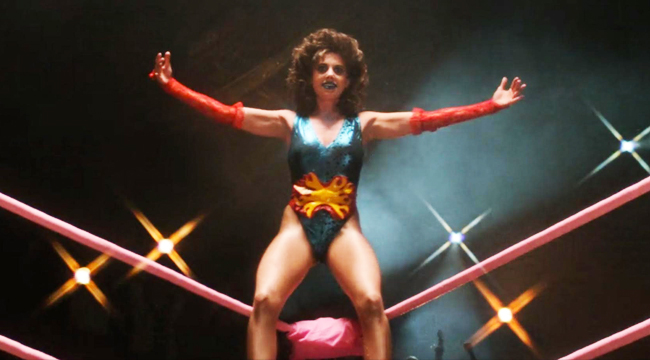
GLOW
3 seasons, 30 episodes | IMDb: 8/10
Packed full of hairspray, ’80s nostalgia, leotards, and neon eyeshadow, 2017’s GLOW surprised us all with a comedy about a group of unconventional women wrestling with stereotypes in and out of the ring. Led by Alison Brie and Marc Maron, the show is both a subversive commentary on issues of gender equality and sexism, and a raucous imagining of what goes on behind the scenes of an adult women’s wrestling league. In other words, it’s a damn good time. Brie carries the series, playing a struggling actress forced to take a “role” in this televised nonsense, but she’s by no means a heroine. In fact, it’s her battle to find her character and herself (while making amends for her bad behavior along the way) that’s so entertaining. Well, that and some good ol’ fashioned body slamming. Season two focuses the spotlight on the supporting cast as the women ready for their television debuts and contend with sexual harassment and misogyny in the workplace.
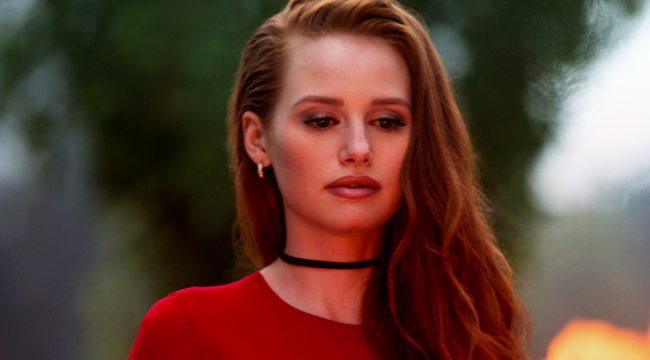
Riverdale
3 seasons, 57 episodes | IMDb: 7.4/10
Riverdale is a dark teen comedy based on characters from the Archie comics. It mixes in elements of a conventional teen drama — romance, small-town life, and the high-school ecosystem — with a compelling, adult murder mystery. The series takes place in a small-town with a 1950s vibe (despite being firmly set in the present) where a high-school teenager is found dead under mysterious circumstances that implicate much of the community as suspects. Riverdale is powered not just by the mystery, but by characters who are instantly likable (Betty, Veronica, and Jughead are all standouts) and easy to invest in. The mystery is so incredibly intriguing that it’s almost impossible not to get wrapped up in it as the storyline guides us through numerous red herrings. It’s a madly addictive series, occasionally campy, and just self-aware enough not to take itself too seriously.
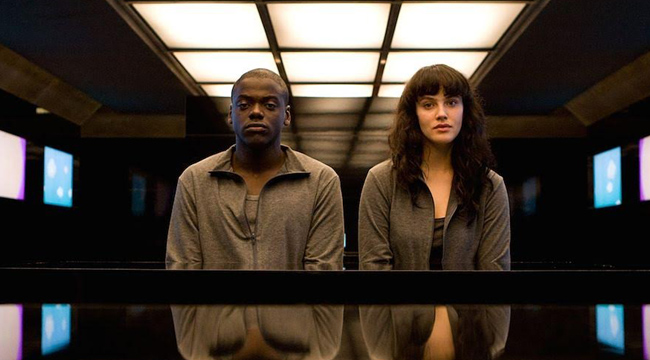
Black Mirror
5 seasons, 22 episodes + interactive film | IMDb: 8.8/10
It cannot be stressed enough how amazing Britain’s Black Mirror is. It’s severely biting social commentary about the current and future technological age in the form of twisted, dark Twilight Zone episodes. It’s an incredible (and incredibly short) four seasons of television, and episode for episode, perhaps the best series on this list. Watch one episode, and you’ll be hooked.
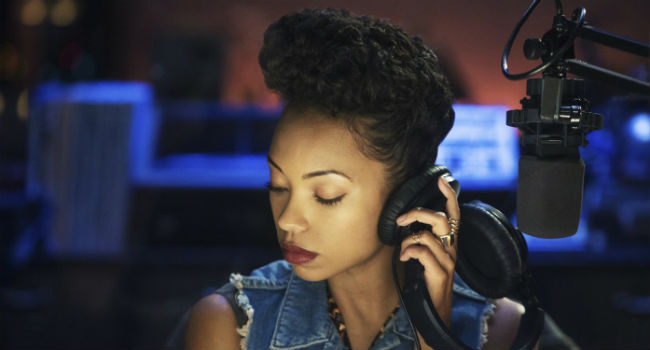
Dear White People
3 seasons, 30 episodes | IMDb: 6.3/10
Netflix’s original series Dear White People builds on the foundations laid by Spike Lee’s drama of the same name. The show kicks off during the aftermath of an event that happened in the film – a blackface party held by a white fraternity on a fictional college campus. Sam, a radio personality and student at the school, covers the fallout for her listeners and serves as a pseudo-narrator to all the goings-on at school. There are brief moments of humor and plenty of satire, but watching these kids deal with racist learning institutions and police brutality and ignorance from the privileged peers feels uncomfortable real and relevant. It’s a must-watch, not only because the acting is superb, and the storylines are rich, but because you’ll probably learn something you didn’t know but should.
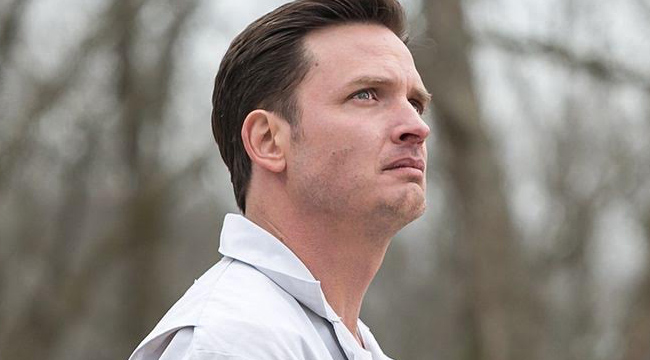
Rectify
4 seasons, 30 episodes | IMDb: 8.4/10
Rectify is maybe the best series on television that no one watched. Aden Young, in a soulful performance, plays Daniel Holden, a man locked up and put on death row nearly 20 years ago for raping and murdering his girlfriend. However, DNA evidence has come to light that casts doubt on his guilt, so the court system has no choice but to release him. Is he actually guilty? Or is he innocent and misunderstood? That’s the question at the heart of the series, and the question the people in his small town, including his family, have to ask themselves. Is this man we’re letting back into our family a murderer and a rapist, or is he the kind, thoughtful man he appears to be? Rectify is a beautiful show about appreciating life that manages to perfectly straddle the line between bleak and hopeful, and quietly features some of the best performances on television.
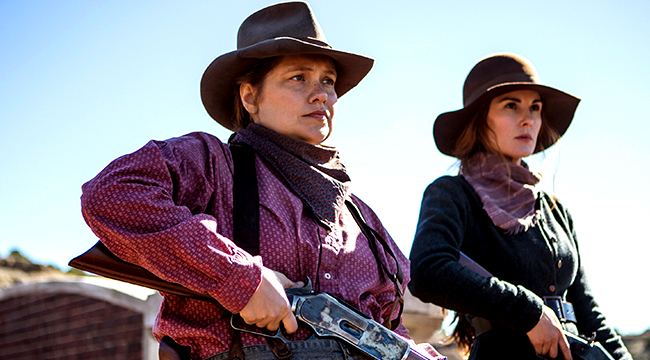
Godless
1 season, 7 episodes | IMDb: 8.4/10
Exec produced by Steven Soderbergh and written, directed, and created by Scott Frank, who wrote Logan and Out of Sight, Godless, is equal parts a feminist Western and s a show about fathers and sons. The series is set in the 1880s in the small mining town of La Belle, where nearly all of the town’s men have died in a mining accident. Enter Roy Goode (Jack O’Connell), a charming gunslinger on the run from the mentor he double-crossed, Frank Griffin (Jeff Daniels), who — along with his crew out desperadoes — had already murdered everyone in another small town for harboring Goode. The series ultimately pits a town of mostly women against a brutal, merciless outlaw gang. Scoot McNairy, Thomas Brodie-Sangster and Sam Waterston play lawmen, but the standouts in Godless are Downton Abby‘s nearly unrecognizable shotgun wielding pioneer woman Michelle Dockery and Merritt Wever, a bisexual woman all out of f–ks to give. It’s a tremendously good series buoyed by beautiful cinematography, poetic language, a few great shoot-outs, and fine performances from the entire cast. It’s one of the best Netflix series of 2017.
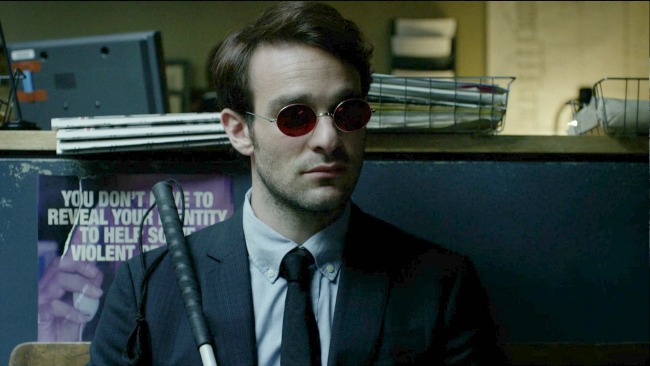
Daredevil
3 seasons, 39 episodes | IMDb: 8.7/10
Daredevil is unquestionably the best superhero series of all time. It has the addictive qualities of the Marvel Cinematic Universe, but it’s darker and more intense than any of those films. It’s harsh, with brutal eye-popping fight sequences. It has an excellent cast (led by Charlie Cox as the title character) with tons of chemistry, and nails the tone of the source material.
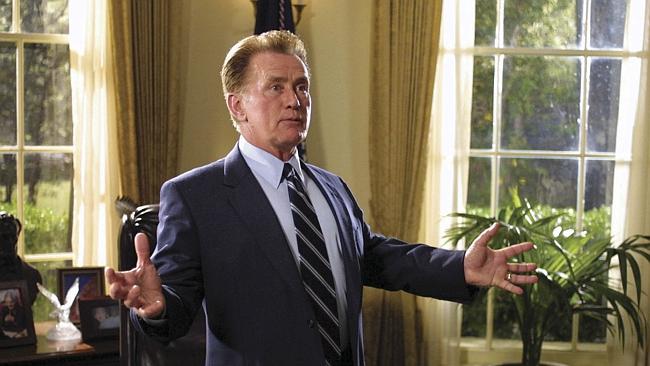
The West Wing
7 seasons, 156 episodes | IMDb: 8.8/10
Television’s all-time best political drama The West Wing is Aaron Sorkin at his absolute best, working with one of the finest ensemble casts in television history. The show wavers after the fourth season (when Sorkin left), but it picks back up in its final season (with Jimmy Smits and Alan Alda). Here’s a celebration of the greatest fictional President of all time to get you warmed up for it.
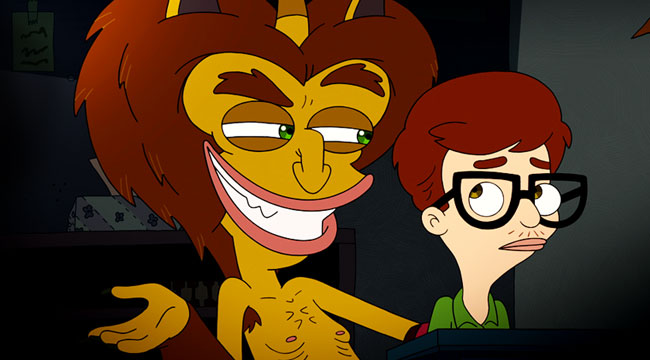
Big Mouth
3 seasons, 31 episodes | IMDb: 8/10
The animated, coming-of-age comedy from Nick Kroll is full of familiar voices and even more familiar life problems. Centered on a group of pre-pubescent friends, Kroll voices a younger version of himself, a kid named Andrew who’s going through some embarrassing life changes like inconvenient erections and strange wet dreams and bat-mitzvah meltdowns. All these traumatizing and hilarious happenings are usually caused by Maurice, Andrew’s own Hormone Monster (also voiced by Kroll) who takes pleasure (literally) in abusing the poor kid. As painfully accurate as the show is, if you’re lucky enough to be removed from that angst-ridden era of life, you’ll probably appreciate the humor in all of it.
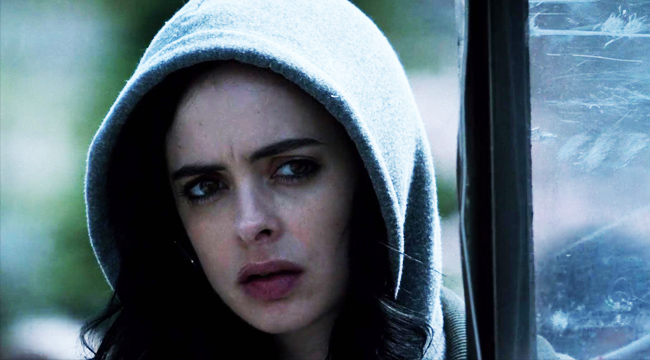
Marvel’s Jessica Jones
3 seasons, 39 episodes | IMDb: 8/10
As an episodic series, Jessica Jones occasionally falters in its first season. Jones is a private detective with certain special powers, but the series doesn’t put her P.I. talents to much use, instead focusing on one storyline surrounding the big bad, Kilgrave (David Tennant) for the entire 13 episodes. Tennant’s character, however, is the best reason to watch the series — he’s captivating yet repugnant, alluring yet vile — and the themes of rape and domestic abuse resonate loudly. Unfortunately, when Kilgrave is not onscreen, the series drifts, and that’s especially apparent in Season 2. Krysten Ritter’s title character is too often dour and sarcastic, robbing the series of some much-needed levity. Still, it’s a captivating, thematically-rich series that covers ground no other superhero series would dare to explore, and while that doesn’t make it the most entertaining Marvel series, it is the bravest and most unique among the Netflix originals.
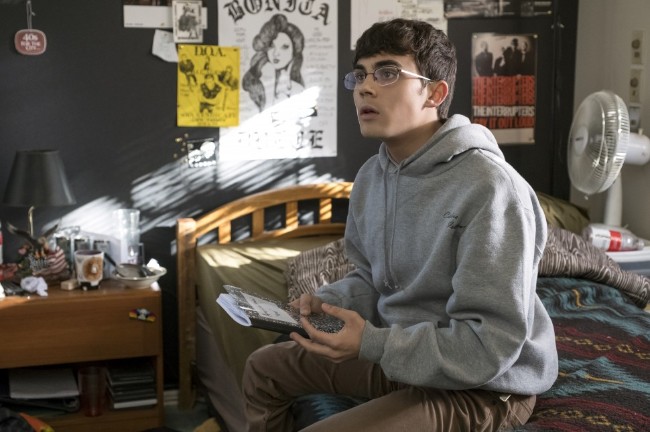
American Vandal
2 seasons, 16 episodes | IMDb: 8.2/10
In theory, American Vandal sounds silly and sophomoric, and it is, but it’s also a genuinely brilliant, incredibly clever, smartly written satire of true-crime documentaries. It plays just like any other true crime docuseries — interviews, investigations, multiple suspects, and numerous conspiracy theories — only the crime here is not a murder. In its first season, it’s a high-school student who has been accused by the school board of spray painting dicks on 27 cars, a crime that threatens his ability to graduate. It’s a brilliant whodunnit that just happens to also be the best parody of 2017, and it even took home a Peabody Award. The show’s follow-up season trades dick picks for explosive diarhhea which is just as fun, if not ten times as gross.
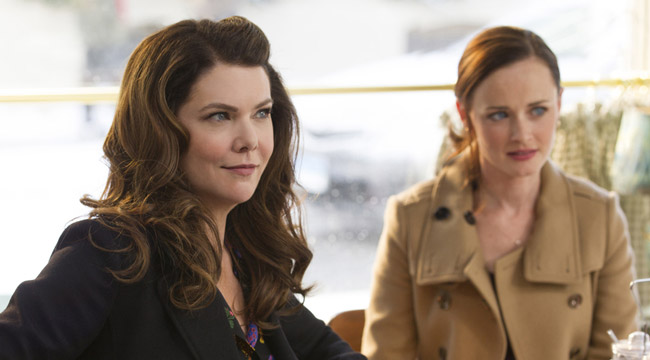
Gilmore Girls
7 seasons, 153 episodes | IMDb: 8.2/10
Maybe the wittiest, pop-culture rich drama ever, Gilmore Girls has nevertheless managed to hold up incredibly well over the years. It’s a great show to watch with a new generation of television viewers, it’s a great show to watch while bingeing on food, and it’s a great show to re-watch many times. The relationship between single mother Lorelai and her daughter, Rory, never gets old.
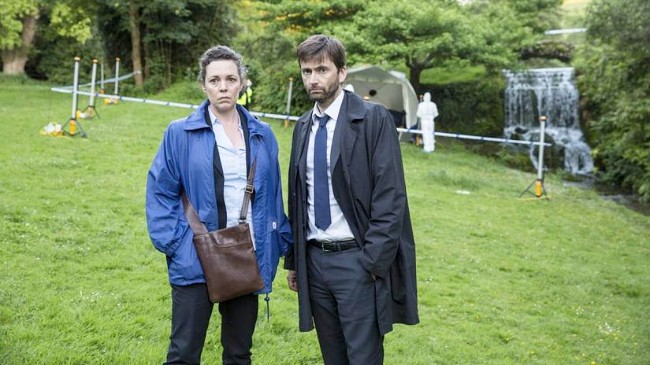
Broadchurch
3 seasons, 24 episodes | IMDb: 8.4/10
A young boy is found dead in a seemingly idyllic small town, and the detectives charged with solving the case turn up twist after twist in tracking down the murderer. Despite its familiar premise (see also: Twin Peaks, The Killing), Broadchurch relies on its ensemble cast — specifically the impeccable David Tennant and Olivia Colman — to keep viewers caring after each red herring is tossed back into the ocean. The first series centers on the hunt for the killer while the second is on both the suspect’s trial and a reopened case from the past, but they both don’t let up in intrigue. A word of warning, though: This isn’t one of those TV dramas you should binge even if you want to. It gets heavy and emotionally exhausting, and unrestrained streaming kinda negates the effect of the show’s mysteries.
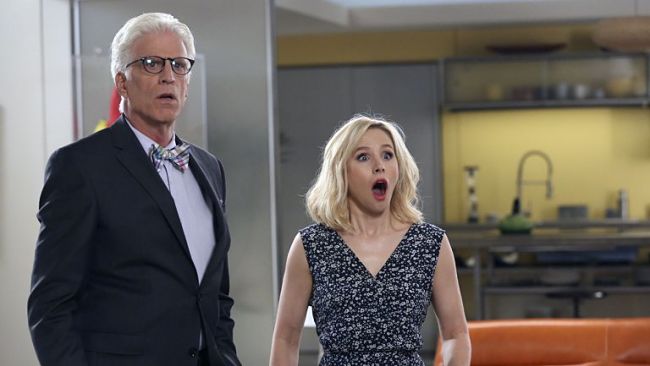
The Good Place
3 seasons, 37 episodes | IMDb: 8.2/10
Set in the afterlife, The Good Place sees a lazy, entitled selfish, Arizona woman Eleanor Shellstrop (Kristen Bell) enter into “Heaven” only to discover that — due to a mixup — she was incorrectly assigned. With the help of her new friends and, Shellstrop endeavors to be a better person and earn her place in Heaven. In the early goings, the high-concept premise feels like it’s going to run out of runway, but Mike Schur (Parks and Recreation) continually finds new directions to take the show and the characters, as the show humorously and sweetly tackles an array of moral dilemmas before arriving at a surprising twist ending. It’s a charming, clever and delightful series with a freshly-imagined approached that only improves as the season progresses and new wrinkles are explored, while Ted Danson is his usual remarkable self. It’s a fantastic comedy, one of the best TV shows on network television in recent years.
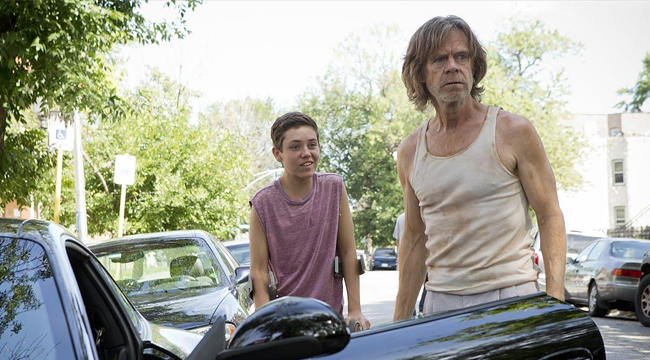
Shameless
9 seasons, 110 episodes | IMDb: 8.7/10
The long-running Showtime series understands better than any other drama on television what it’s like to be poor in America. Set in Chicago, Shameless follows the lives of the Gallagher family as they struggle beneath the poverty line to make ends meet. The family is afflicted with alcoholism, drug addiction, mental illness, poor decision-making skills, and the kind of terrible luck that so often follows poor families, but they’ve also got each other, their resilience, and a determination to break the cycle, but in Shameless, impoverishment is the boogeyman that always comes back, hilariously and heartbreakingly.
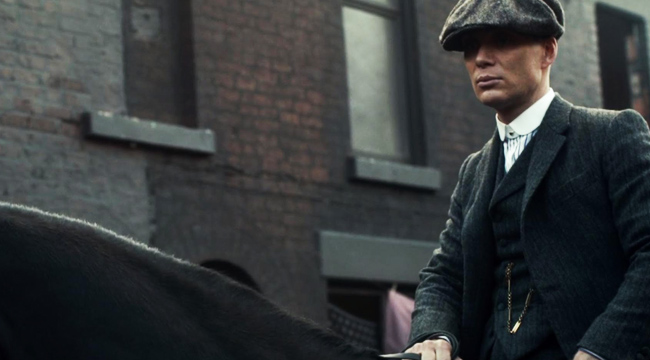
Peaky Blinders
5 seasons, 30 episodes | IMDb: 8.8/10
Another British import, Peaky Blinders is roughly the Netflix UK equivalent of HBO’s Boardwalk Empire, taking place in the same time period and covering similar terrain. Peaky has one thing that Boardwalk does not, however, and that’s the piercing, intense Cillian Murphy. The show also features Tom Hardy as a phenomenal recurring character debuting in season two (along with Noah Taylor).
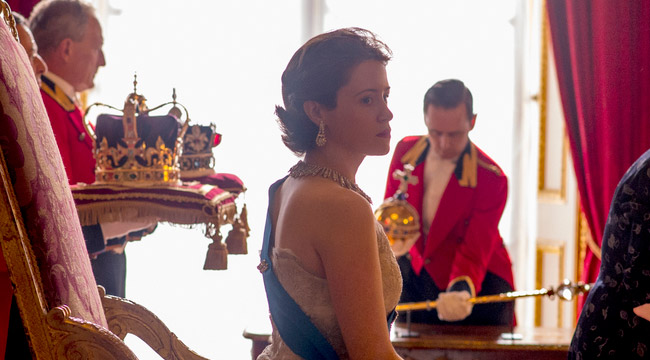
The Crown
3 seasons, 30 episodes | IMDb: 8.7/10
At once intimate and sweeping, The Crown presents an inside view of the ascension of Queen Elizabeth II, played by Claire Foy, and the first few years of her reign. John Lithgow is featured as the indomitable Winston Churchill, struggling with the ignominy of age at the end of his career. Churchill’s support and mentorship of Elizabeth, despite his limitations, creates an important emotional center around which various historical events turn. Elizabeth’s relationship with her husband, Prince Phillip (Matt Smith) is also wonderfully explored; his role as consort is one that he by turns delights in and rebels against. The production spared no expense in painstakingly recreating the physical environments and rigid protocols that constrained and defined the royal family. The challenges posed by modernity and the post-colonial period are filtered through the Palace’s political structure, in which despite her role, Elizabeth’s personal needs and wishes are continually subsumed to protocol and appearance. This series will appeal to anyone who enjoys costume drama, but it is also a fascinating exploration of the post-WWII period and the development of a monarch who managed to maintain and even expand the popularity and stability of the British Monarchy against significant odds.
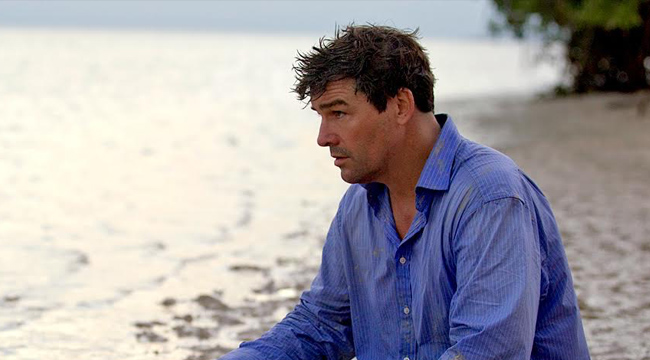
Bloodline
3 seasons, 33 episodes | IMDb: 8.1/10
Bloodline is engrossing, so much so that somewhere along the way, you may find yourself wondering if you skipped an episode. You’ll start in on episode 7, fall into a trance, and wake up somewhere around episode 10, wondering what happened to the last four hours of your life. Ben Mendelsohn will hook you immediately, but after four or five episodes into season one — once the pieces begin to fall into place — the story will sweep you along toward the dark and sickly satisfying end, capping the season off with four of the best episodes in the short but stellar history of Netflix’s original programming. Unfortunately, the following seasons — while still a fine TV — don’t live up to the first.

Jane the Virgin
5 seasons, 100 episodes | IMDb: 7.8/10
Based on a Spanish telenovela, Jane the Virgin plays more like a brilliant but genial satire of conventional telenovelas. Gina Rodriguez plays the virgin here, who is impregnated through an accidental artificial insemination. Matters are complicated, however, because she has to break the news of her pregnancy to her deeply religious family, as well as her fiancé, with whom she has never had sex. Jane also develops feelings for another man who just so happens to be the baby’s father. It sounds like a premise that could not sustain itself beyond 5 episodes, but the writing is so good and the characters so delightful that Jane never gets bogged down by its premise. It’s a genuinely delightful, heartwarming show, and Gina Rodriguez lights up the screen every second she is on it.
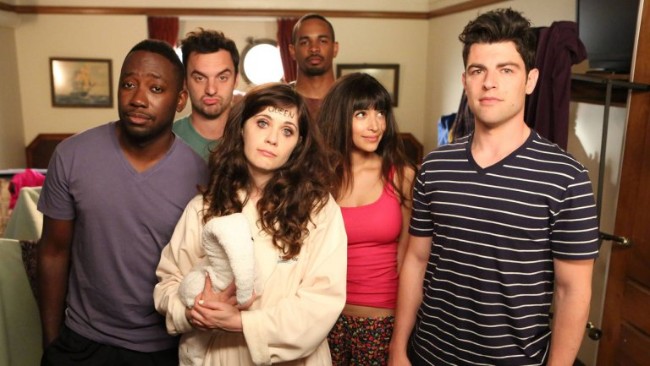
New Girl
7 seasons, 146 episodes | IMDb: 7.7/10
Fox’s comedy about a quirky girl who moves in with three male roommates quickly evolved from a pretty straightforward premise to become one of the best shows on TV. Zooey Deschanel plays Jess, a teacher who’s forced to room with three other guys, Nick (Jake Johnson), Schmidt (Max Greenfield), and Winston (Lamorne Morris) after she discovers her boyfriend’s been cheating on her. For the next seven seasons, the gang grows to become close friends — getting married, having babies, experiencing sympathy PMS, and getting stuck in Mexico, among other disasters. Still, it’s the chemistry between the four mains that makes every outlandish episode work.
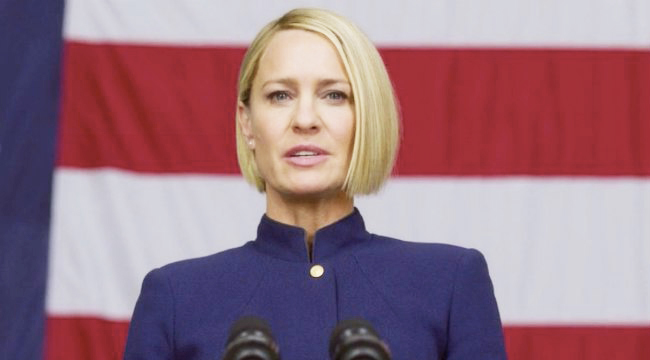
House of Cards
6 seasons, 78 episodes | IMDb: 8.8/10
House Of Cards, Netflix’s first major foray into original programming, is worth every cent of its $100 million production budget, featuring searing performances, a droll sense of humor, slick writing, engrossing plot-lines, and Kevin Spacey chewing the face off the scenery. The first season is phenomenal, but the show rapidly goes downhill through its six seasons with some sparks of life in scattered seasons, with the final season focused on Robin Wright’s Claire Underwood being cluttered at best.
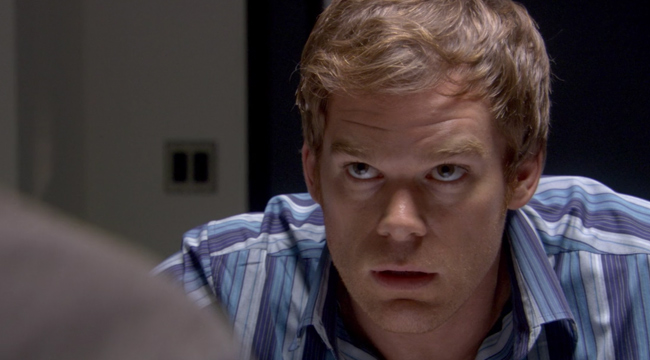
Dexter
8 seasons, 96 episodes | IMDb: 8.7/10
Michael C. Hall is absolutely terrific as a blood spatter analyst for the Miami police department who moonlights as a serial killer and tries to keep his two lives separate. There’s a great opening season, a fantastic fourth season, and in between the two, a couple of decent ones. Do yourself a favor, however, and don’t bother with Dexter‘s final four seasons. It’s a testament to how good the first and fourth seasons were that it still gains a place upon this list, despite a deeply disappointing final season.
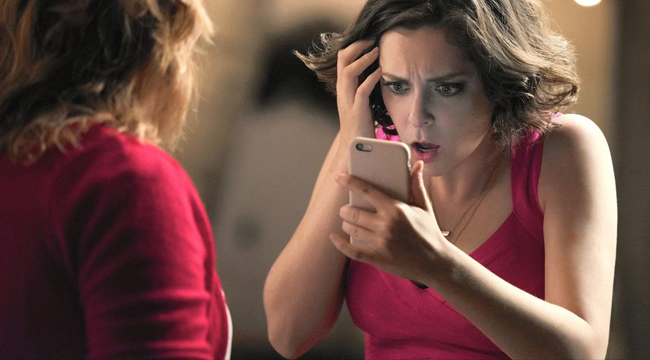
Crazy Ex-Girlfriend
4 seasons, 62 episodes | IMDb: 7.7/10
A musical series about a woman who leaves her prestigious job in Manhattan to follow an ex-boyfriend to a small town in California, Crazy Ex-Girlfriend is like no other show on a show on television. The premise is not unlike that of Felicity, but the tone is unique: Quirky and hilarious on the surface, but dark and subversive underneath. As co-creator (along with Aline Brosh McKenna) and star, Golden Globe winner Rachel Bloom provides catchy songs with irreverent lyrics that offer dark meditations on depression, insecurity, and the challenges of balancing careers and love lives. Crazy Ex-Girlfriend is funny, feminist and infectious.
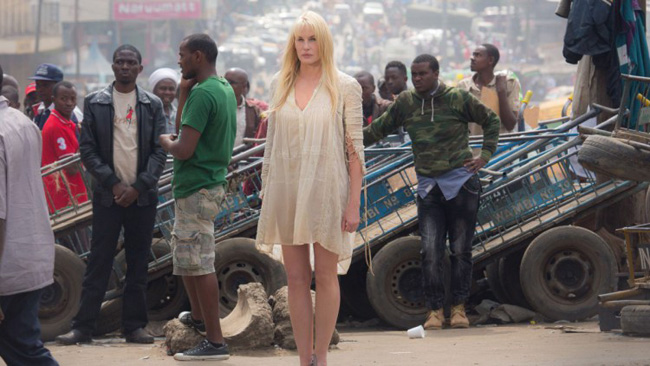
Sense8
2 seasons, 24 episodes | IMDb: 8.4/10
Once the Wachowskis’ underappreciated sci-fi series establishes its characters, there’s at least one profoundly moving moment in every episode. Sense8 is rich with brilliant ideas, and, though they’re not always executed with perfect logic, the chemistry between the characters is undeniable. It’s impossible not to root for them, to feel and experience their ups and downs, their confusion and heartbreak, and, most of all, their love. The Wachowskis first foray into television is at once romantic, life-affirming, and thought-provoking.
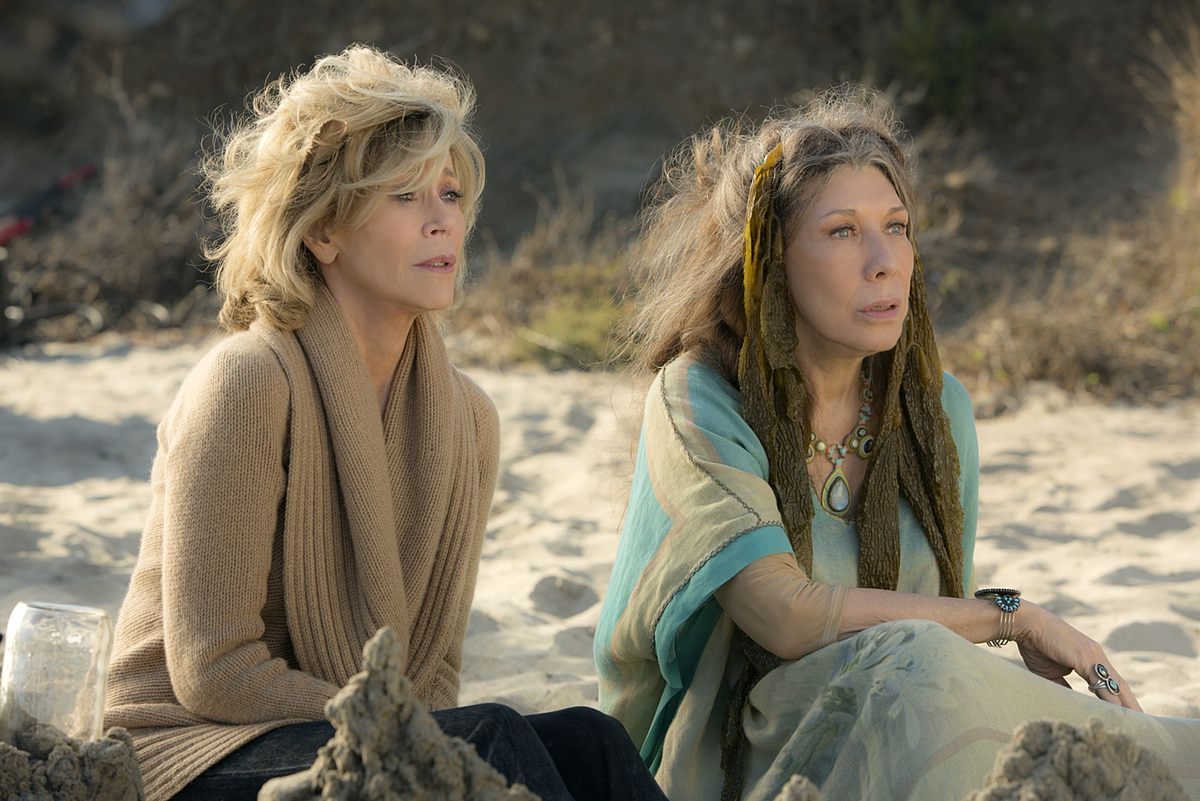
Grace And Frankie
6 seasons, 78 episodes | IMDb: 8.3/10
It’s rare that older women get a chance to shine on a half-hour comedy series, but if your stars happen to be Lily Tomlin and Jane Fonda, you’d be insane not to have all the action center on them. Grace and Frankie follows the pair as they discover that their husbands have been carrying on an affair with each other. The news throws life into chaos, forcing Grace and Frankie to room together and pick up the pieces. Along the way, there are family squabbles, online dating drama, and a battle over the ladies’ organic lube company but at the heart of the show are these two women who bond after a devastating ordeal and support one another during a time of change and growth. Did we mention organic lube? There’s that, too.
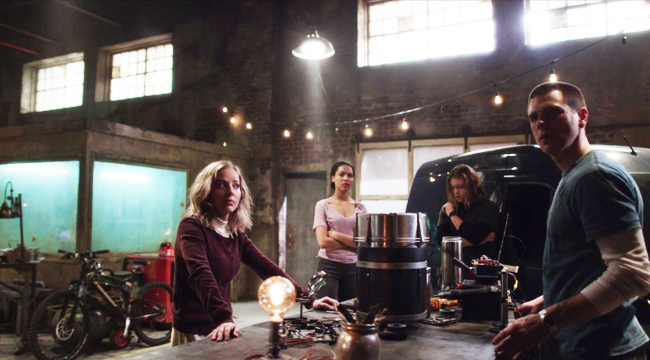
Travelers
3 seasons, 34 episodes | IMDb: 8.2/10
Travelers is a sci-fi series co-produced by Netflix and a Canadian television network Showcase starring Eric McCormick (Will & Grace). It’s a light sci-fi drama about people from hundreds of years in the future whose consciences are sent back to the present day to take the place of others who are already about to die. They’re sent back, a la Terminator, to prevent a bleak future from taking place. In the present day, this group of people is tasked with missions to prevent the future dystopia from happening, but they also have to acclimate into the lives of their host bodies. It is a quintessential Netflix show: Easy-to-binge, madly addictive, fun as hell, and immediately engrossing. While it certainly borrows heavily from other sci-fi shows and movies, it does an excellent job of shaking it up and bringing fresh life to the genre.
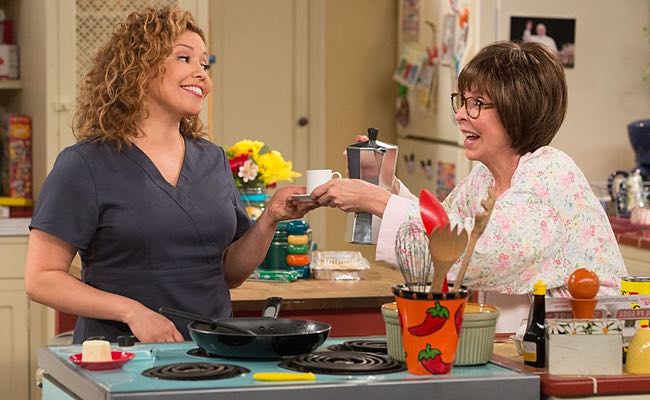
One Day at a Time
3 seasons, 39 episodes | IMDb: 8.2/10
A remake of a 1970s sitcom produced by 94-year-old iconic television producer Norman Lear, One Day at a Time manages to not only match its predecessor but miraculously improve upon it. This new version centers on a Cuban America family headed by a single mom (Justina Machado) raising three kids with the help of her mom (Rita Moreno). It’s broad jokes and laugh track feels somewhat out of place on the streaming service, but the jokes still land and more importantly, the characters connect in an honest way as they attempt to live on a modest nurse’s salary and maintain their Cuban heritage while adapting to modern progressivism (much like Fresh Off the Boat). It’s more poignant sitcom than it is funny, but it’s a warm, loving look at difficulties of single parenting that resonates as much today as it did in the ’70s.
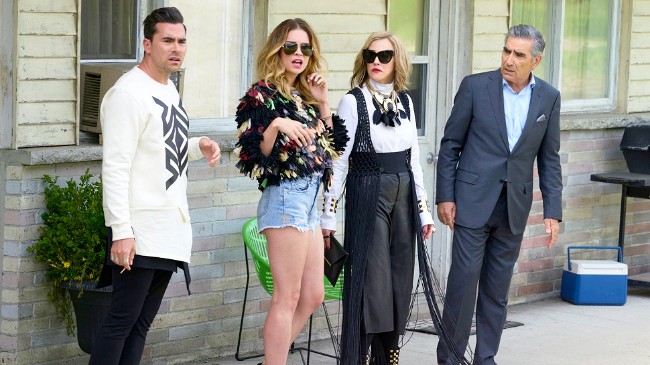
Schitt’s Creek
5 seasons, 66 episodes | IMDb: 8/10
Eugene Levy and Catherine O’Hara star in this Canadian sitcom about a wealthy family forced to scale down their extravagant lifestyle with hilarious results. Levy plays Johnny Rose, a rich video-store magnate who loses his fortune when his business manager fails to pay his taxes. O’Hara plays his wife, Moira, a former soap opera star who, along with her husband and their two pampered children, must move to a town called Schitt’s Creek. Johnny bought the town as a joke when the family had more money than they could spend, but now, the town and its residents serve as a comedic wake-up call for a guy who has problems rooting himself in reality. Levy is brilliant in this thing and it’s a damn shame the show is so overlooked by American audiences. Let’s change that.
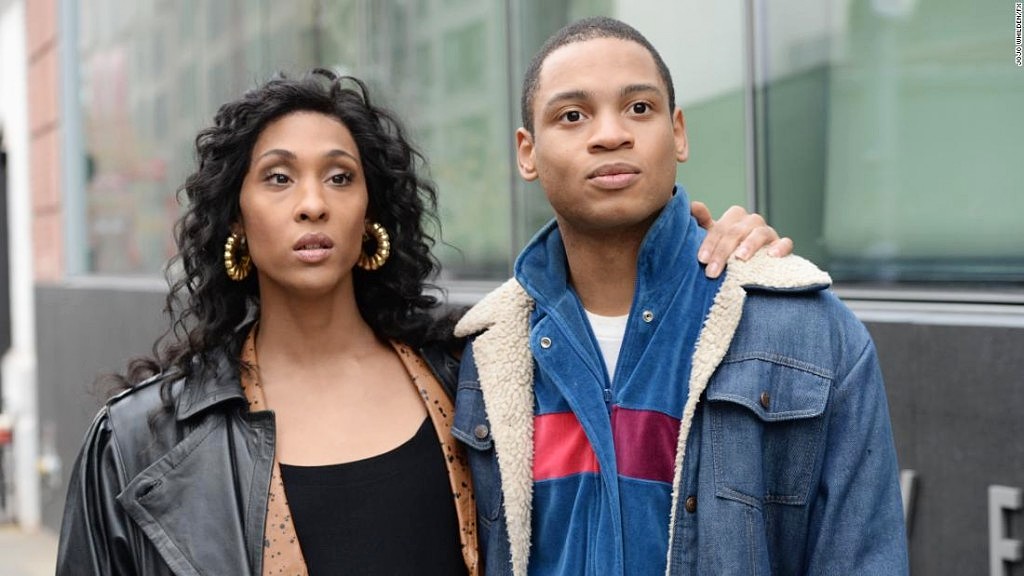
Pose
2 seasons, 16 episodes | IMDb: 8.5/10
Ryan Murphy’s fashionable ’80s drama imagines the rise of the world of ball culture. Murphy focuses on warring houses in the scene, painting a myriad of queer portraits about gays, lesbians, and trans warriors, forging their own path amidst bigotry and hatred in New York City. There’s couture, there are catfights, and there’s plenty of vogueing, but there’s also nuanced, heartfelt portrayals of figures who paved the way for the acceptance of this fringe community.
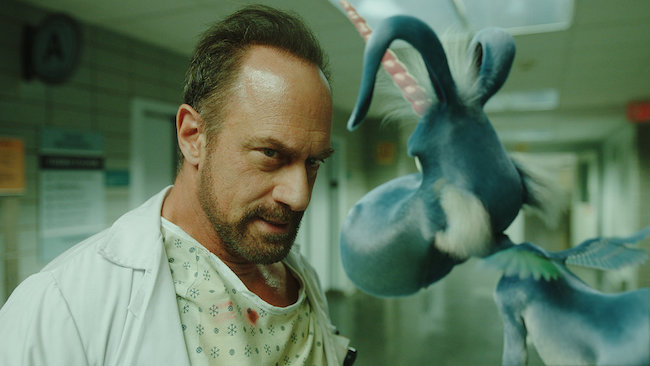
Happy!
2 seasons, 18 episodes | IMDb: 8.3/10
On paper, Happy! feels more like an Adult Swim-inspired fever dream than a Syfy series. Disgraced detective-turned-hitman Nick Sax (Christopher Meloni) meets his new best friend and partner, a lovable blue unicorn that only Sax can see named Happy (voiced by Patton Oswalt), who tasks him with rescuing a young girl who’s been abducted by a maniac Santa Claus. It’s a ridiculously violent and dark, with Sax getting hurt more than Harry and Marv in both Home Alone movies combined, with enough comedy and twists to keep you bingeing episode after episode. It’s a fun, over-the-top show, and it relishes in its unique elements.
Recent Changes Through July 2020:
Added: Hannibal, Pose, Unsolved Mysteries
Removed: Mad Men, Happy Valley, iZombie

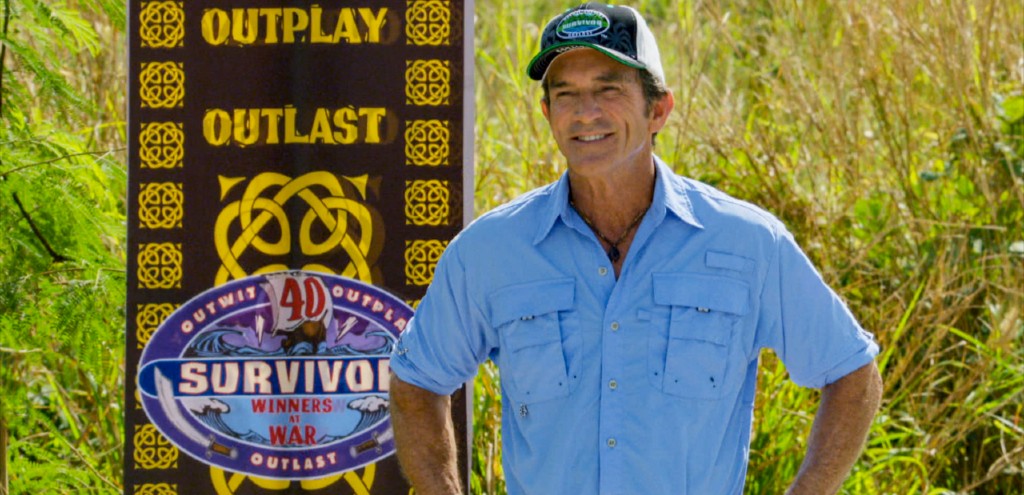
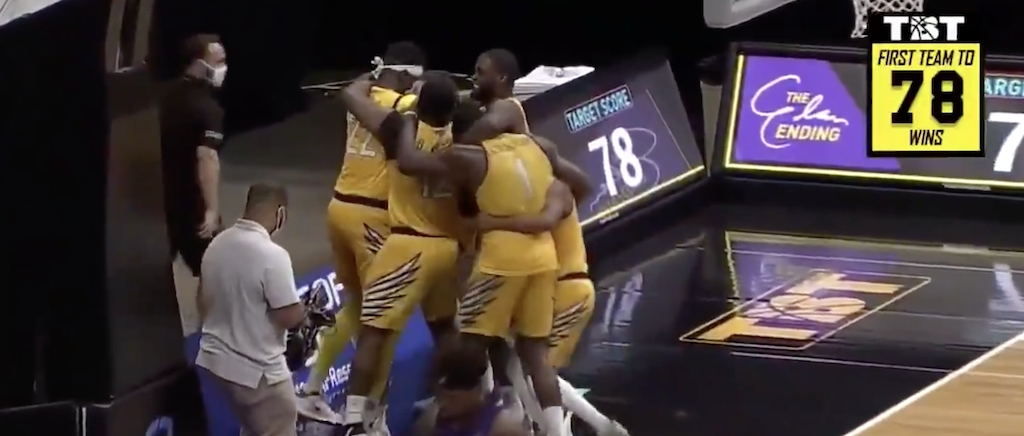




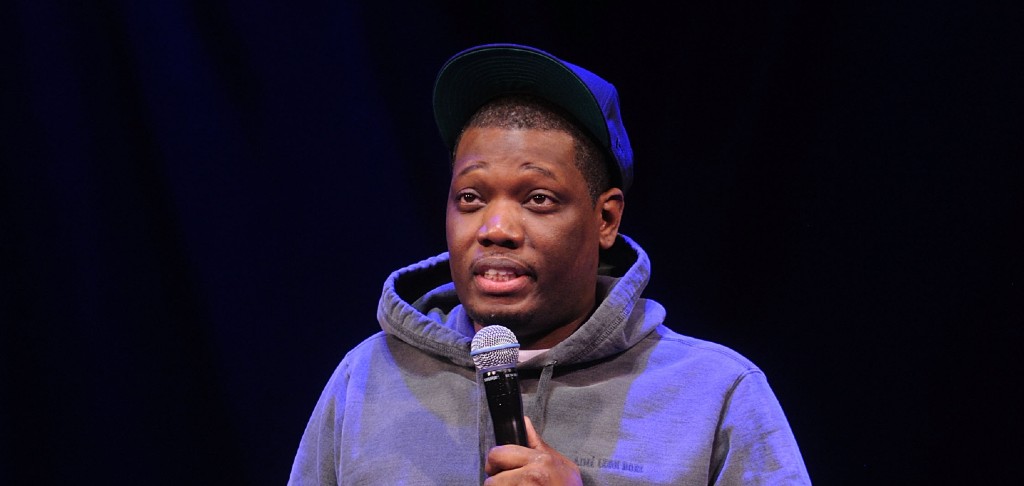
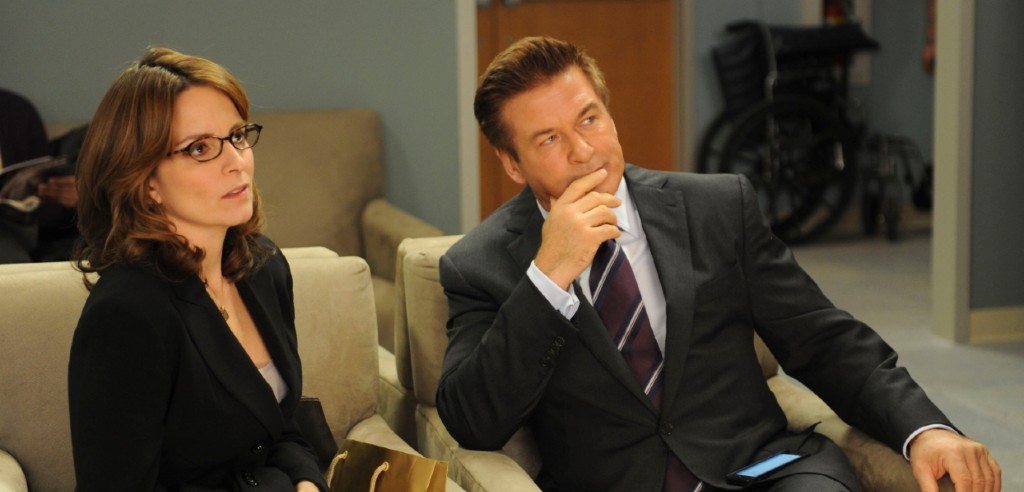
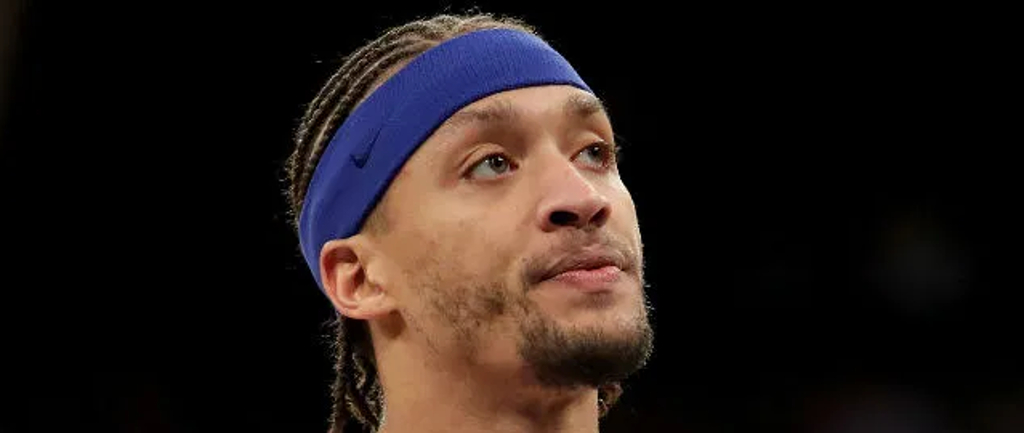
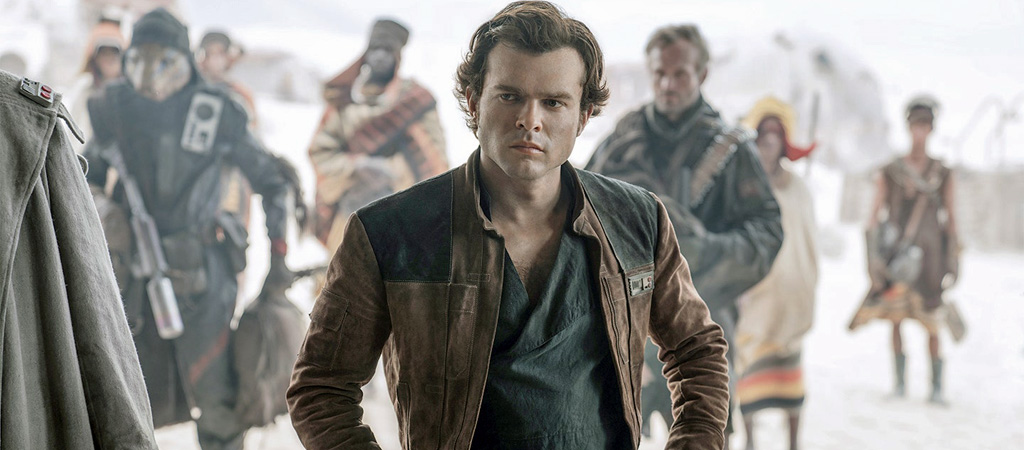
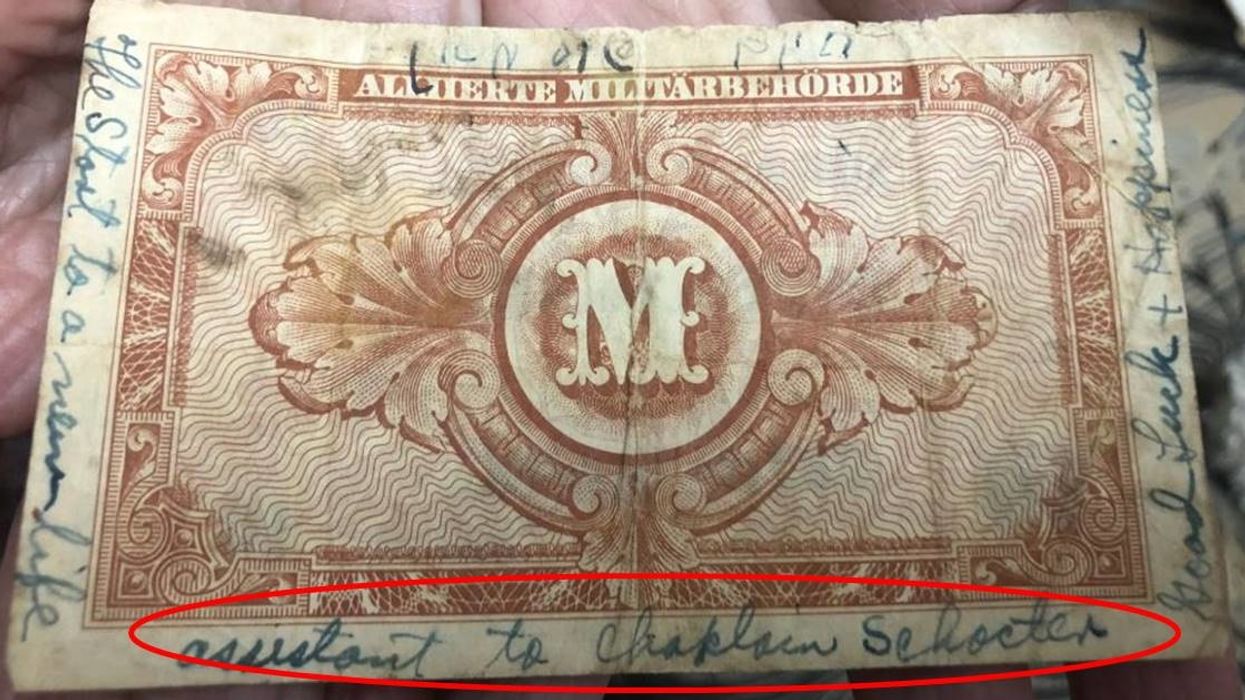
 Lily Ebert is the woman with the soldier’s arm around her.via Dov Forman / Twitter
Lily Ebert is the woman with the soldier’s arm around her.via Dov Forman / Twitter Image: Lilly Ebert and Dov Forman (right) hold a Zoom call with Arlene and Jason Schulman, descendants of the American GI that liberated Lilly during the war, along with Lilly’s daughter and husband Bilha and Julian Weider.via Dov Foreman
Image: Lilly Ebert and Dov Forman (right) hold a Zoom call with Arlene and Jason Schulman, descendants of the American GI that liberated Lilly during the war, along with Lilly’s daughter and husband Bilha and Julian Weider.via Dov Foreman